Monday 27th February. Yesterday I had a slightly sore throat and I’m not feeling on top form. The rooftop pool at the Phlox Hotel in Hubli was inviting but I just didn’t feel up to it. Today the throat is really very sore and I have a headache which worsens throughout the day. I don’t have a temperature. I take paracetamol and drink plenty of water. I have an uncomfortable, mostly sleepless night. On Tuesday morning I manage a decent breakfast and more paracetamol. We take the 3 hour train journey (delayed by a further 2 hours) to Hospet near Hampi. It’s very crowded and the only space we can find is in a sleeper compartment, off limits without a reservation, but an elderly Indian sits on his bunk and, very kindly, invites us to share his space. The ticket collector is reasonable and doesn’t throw us off – unlike his handling of a couple of young Indian guys we’ve befriended. He throws them out onto a platform – ten minutes later, with beaming smiles, they’re back in our carriage. I really don’t feel good.
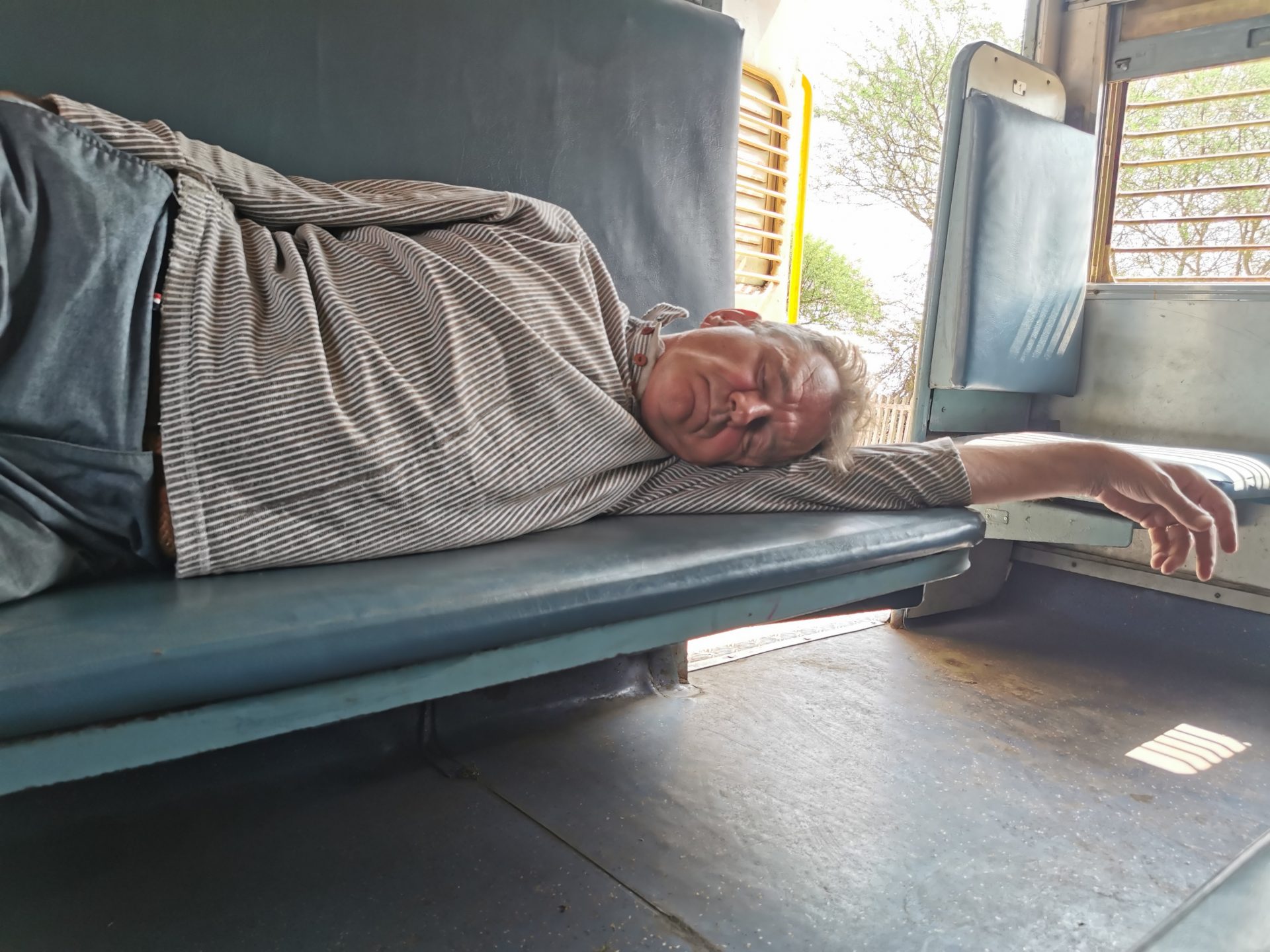
At Hospet station we’re met by our rickshaw driver for the 30 minute drive to Hampi Bazaar where we check into a very comfortable residence, the Mango Tree, in the heart of the ruins of the ancient city. Our room overlooks the ruins and its finest feature is a small shaded courtyard with comfortable chairs and a lovely collection of potted tropical plants. I’m all done in. I do a Covid test which is positive.
Coronavirus started its world tour more than three years ago, in late 2019. Despite living with folks who’ve contracted it, I’ve never knowingly succumbed and was thinking I wasn’t vulnerable, possibly immune. Well, being squeezed in amongst the poor huddled masses of India for five weeks has put paid to that delusion.
The only drug I presently need is paracetamol and we’ve run out. Jo goes on a paracetamol hunting expedition. She has a grand outing – makes friends with a German woman and her Keralan boyfriend, buys coconut, chocolate, peanuts, enjoys a ferry ride, and even gets her ear wax removed by a shamen under a peepal tree – but no paracetamol. Jo insists that she returned from this foray with paracetamol. I know I was a bit delirious but that’s not my recollection. I recall her having to go out again to buy some. This has really become a point of some contention. We’ll just have to live our own truths
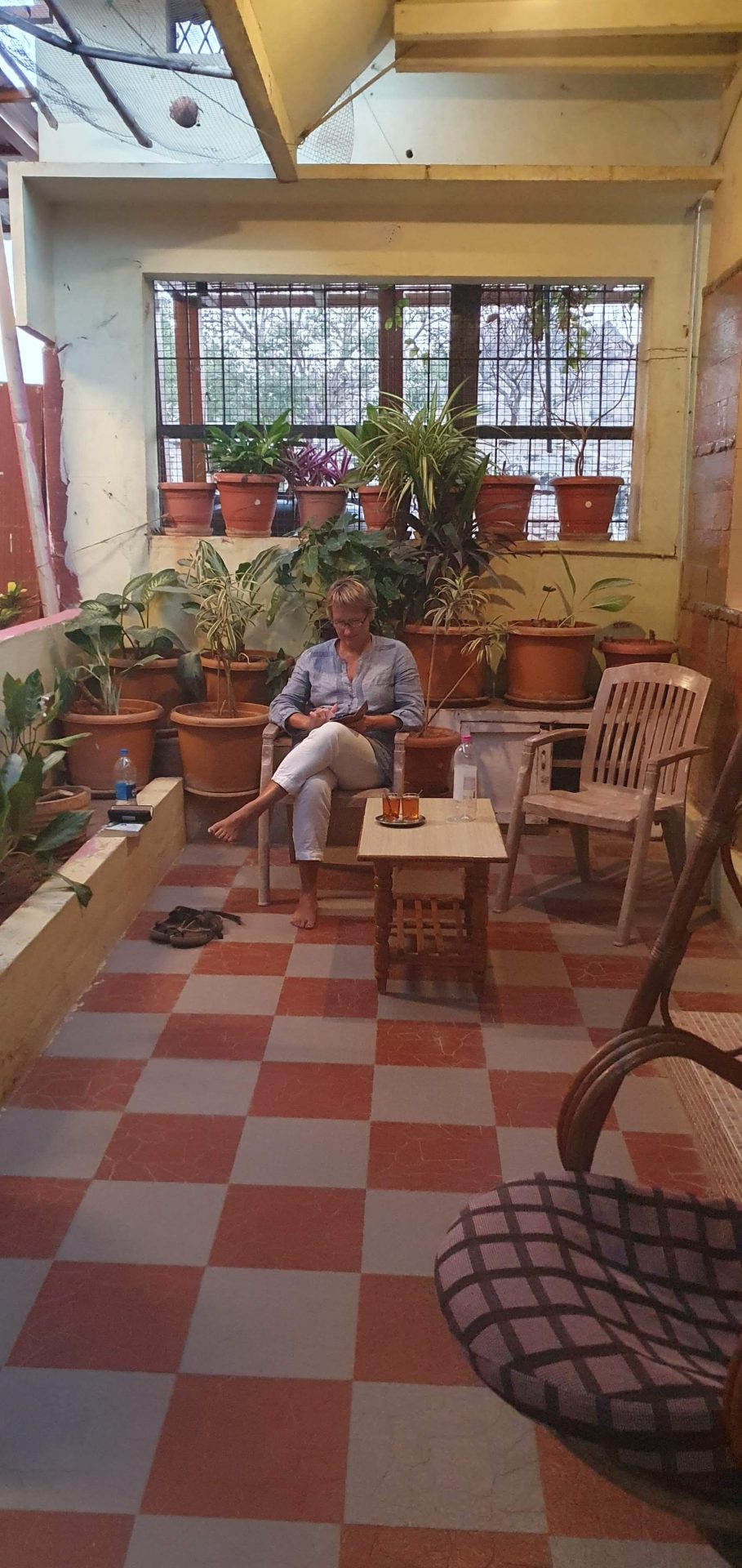
The delightful woman who owns the homestay next door at the other side of a low stone wall presents us with a menu of tasty homemade dishes (we’ll run up a decent bill with her). I don’t want to eat. I might manage a peanut or two later. Jo leaves some on a plate on the table in the garden. They are unattended for thirty seconds when a troop of very fast and enterprising macaque monkeys descend from the roof and snaffle the lot. If Jo says I’m feeling sorry for myself I’ll say feckin right I am.
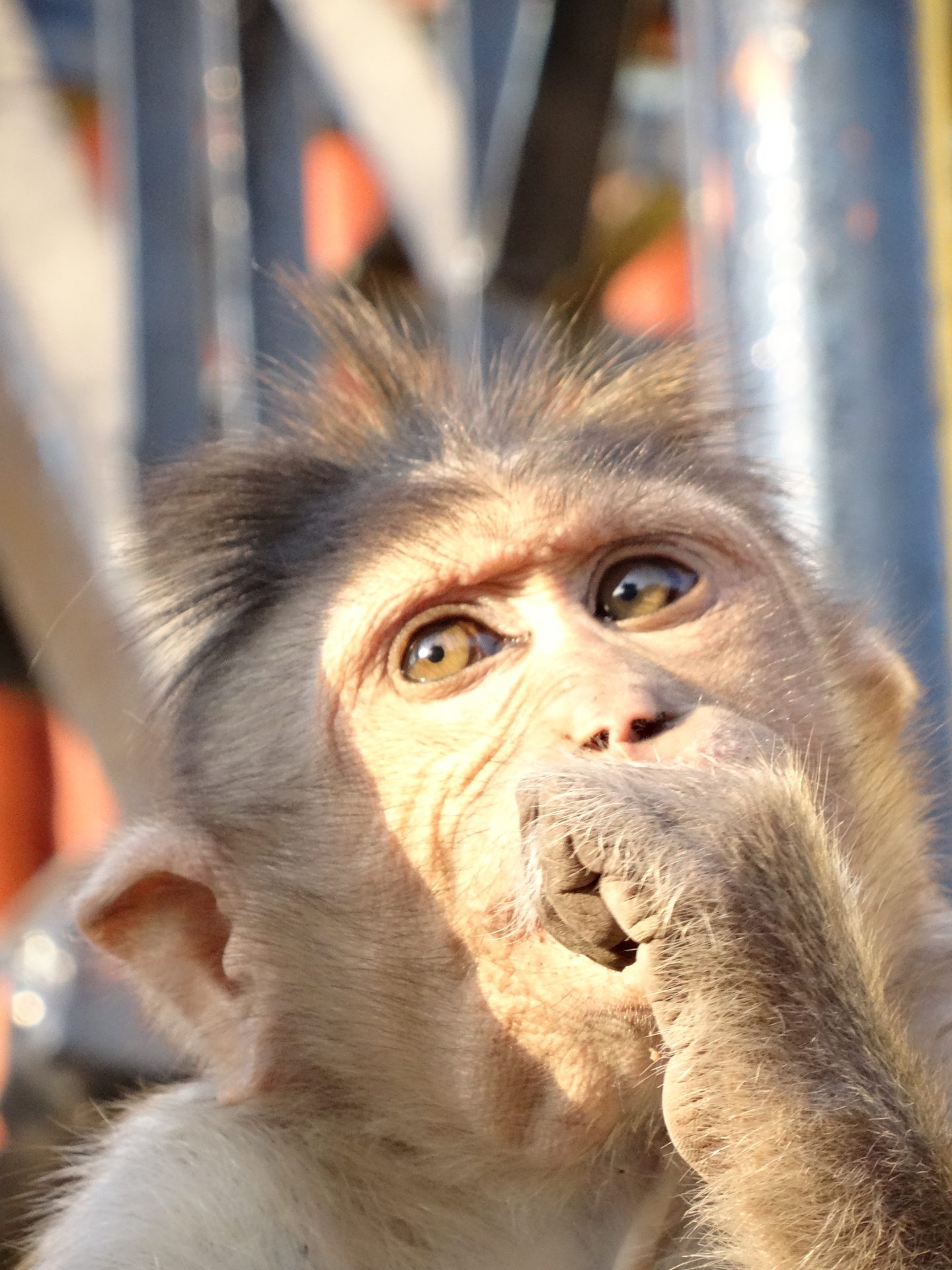
It’s Wednesday or Thursday. Our room immediately overlooks the avenue of stone arches leading to the ornate towering Hindu Virupaksha temple. Jo has taken a rickshaw for the day to visit the temples and ruins of the ancient capital city of the Vishnayagara empire which covers some 28 sq km. I’m going to stay put and ride out the Covid. I’ve just been for a very brief walk to the temple and around the few dusty streets that is Hampi Bazaar. It’s a colourful little district with very friendly inhabitants. Hampi is very much banana pancake territory – on the trail of young backpackers – so there are a few chillout bars (but no alcohol) and pizza restaurants selling full English breakfasts. There are young, badly sunburnt, tattooed, bare chested chavs, and the more sensitive and ridiculous weeds in Jack Sparrow headscarves and elephant print Indian pants, indulging in a veneer of India.
But this morning I’m quickly exhausted and the constant entreaties of people trying to sell me stuff I don’t want wears me out. It’s just too much, so I’m back here in the tranquil shaded courtyard of our residence.
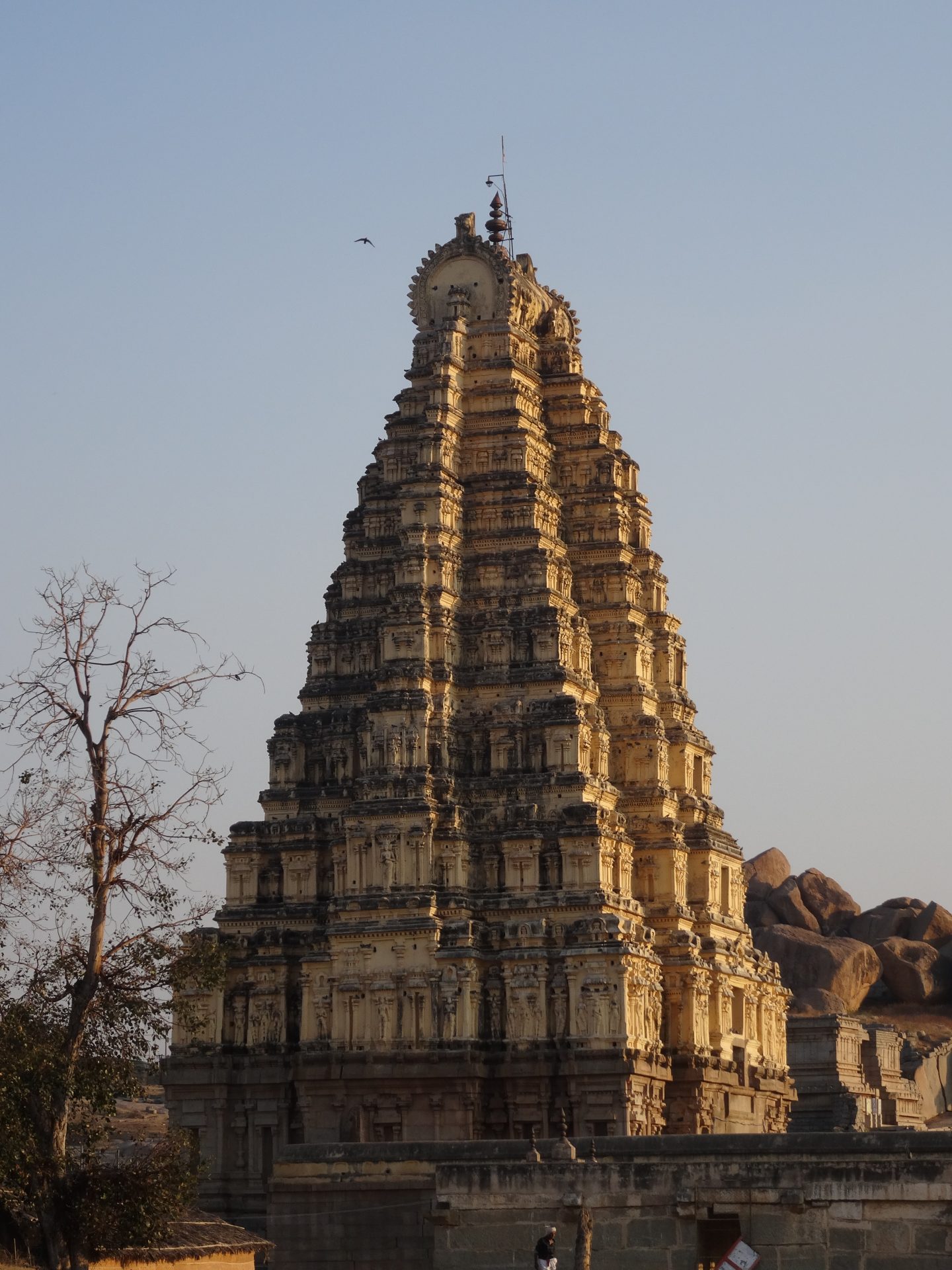
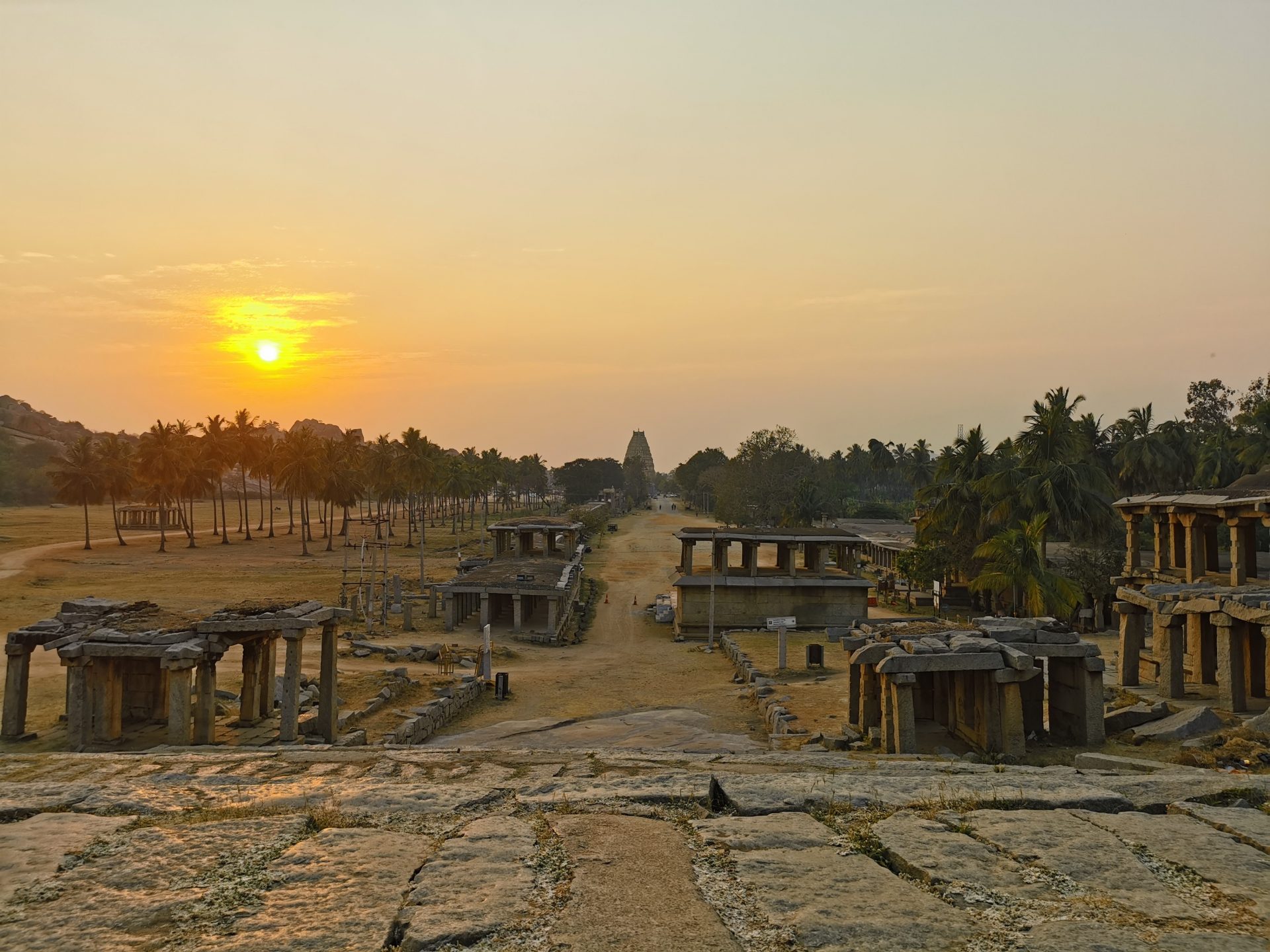
Hampi’s history is fascinating. Since reading Jan Morris’s Pax Britannica as a teenager I’ve been fascinated by empires. Conquest and domination is human nature – it’s baked into the psyche. And despite the denial by those ignorant of human history, we still live in the Age of Empires. Hampi was the prosperous and grand capital of the Vijayanagara Empire in the 14th century. By 1500, Hampi-Vijayanagara was the world’s second largest mediaeval city after Beijing, and probably India’s richest, attracting traders from Persia and Portugal. It dominated all of southern India for over three hundred years.
The Vijayanagara Empire collapsed after the Battle of Talikota, a confrontation between the forces of the Hindu Raja of Vijayanagar and the four allied Muslim sultans of Bijapur, Bidar, Ahmadnagar, and Golconda. The battle was fought on January 23, 1565, at a site southeast of Bijapur, in what is now northern Karnataka state. The armies collectively numbered several hundred thousand, with large contingents of elephants. Each had been gathering in the area since late December, 1564. The battle seems to have been decided by technology (what’s new) and defection. The Muslim Sultanate armies, though numerically disadvantaged, were better equipped and trained. The Sultanate artillery was manned by expert Turkish gunmen while the Vijayanagara army depended on European mercenaries using outdated artillery. The Sultanate cavalry rode swift Persian horses and used spears that were up to sixteen feet long, and their archers used metal cross bows enabling them to reach longer distance targets. In comparison, the Vijayanagara army depended on slow moving war elephants, cavalry of mostly locally bred weaker horses wielding shorter reach javelines, and their archers used traditional bamboo bows with a shorter range. Despite these disadvantages the vast Vijayanagara army appeared to have the upper hand until two Muslim generals switched sides and joined forces with the Sultanates thus turning the tide.
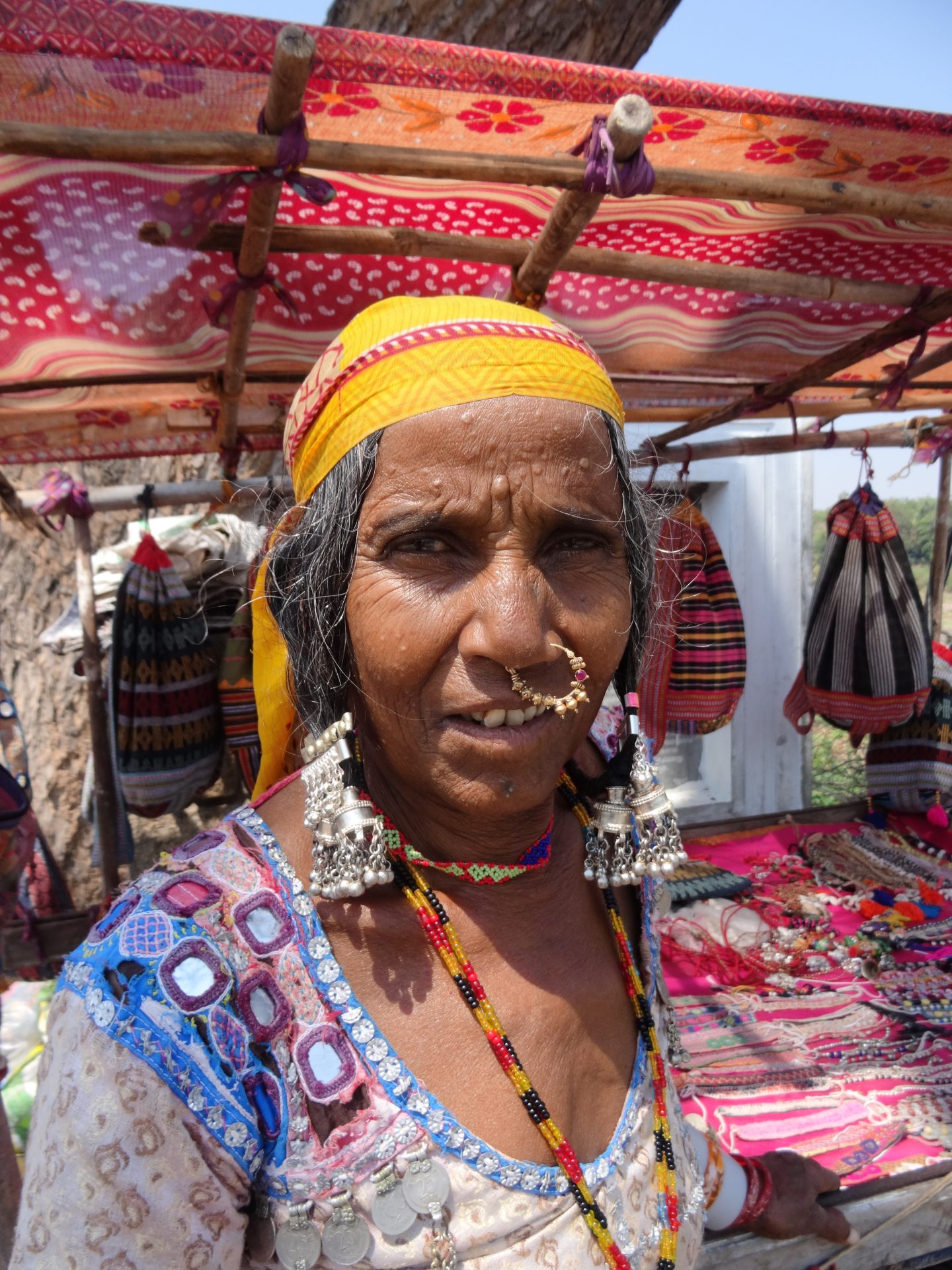
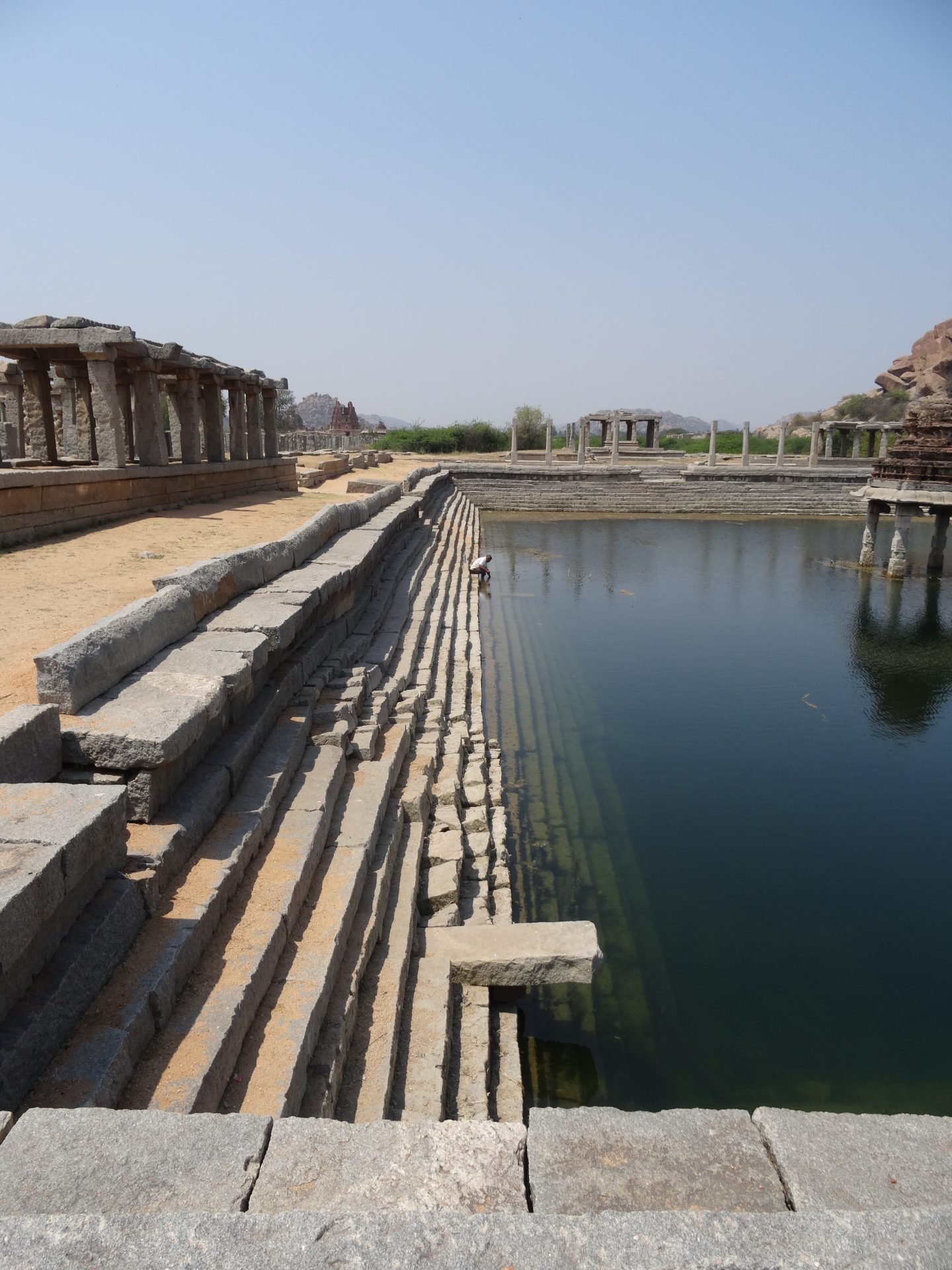
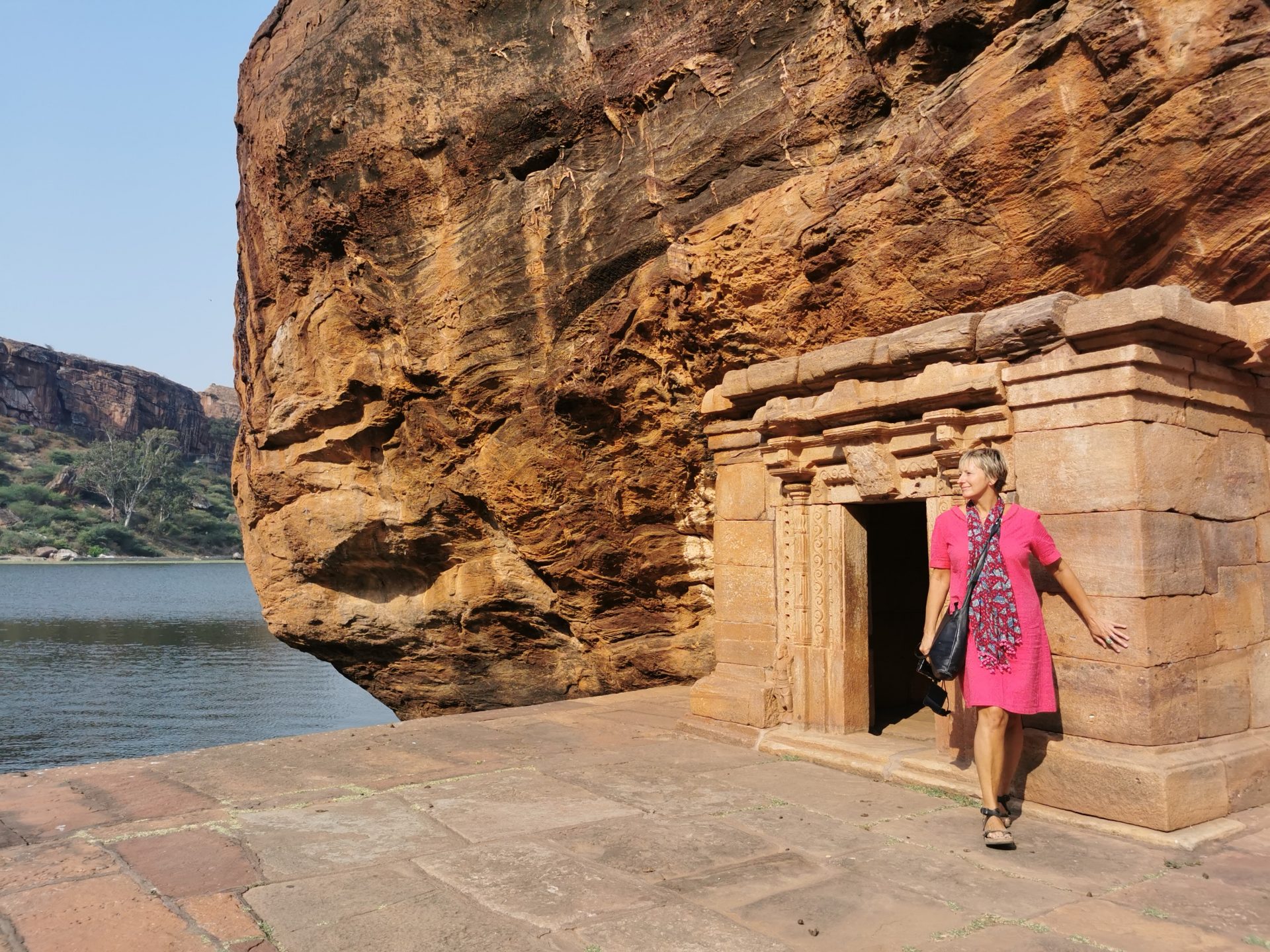
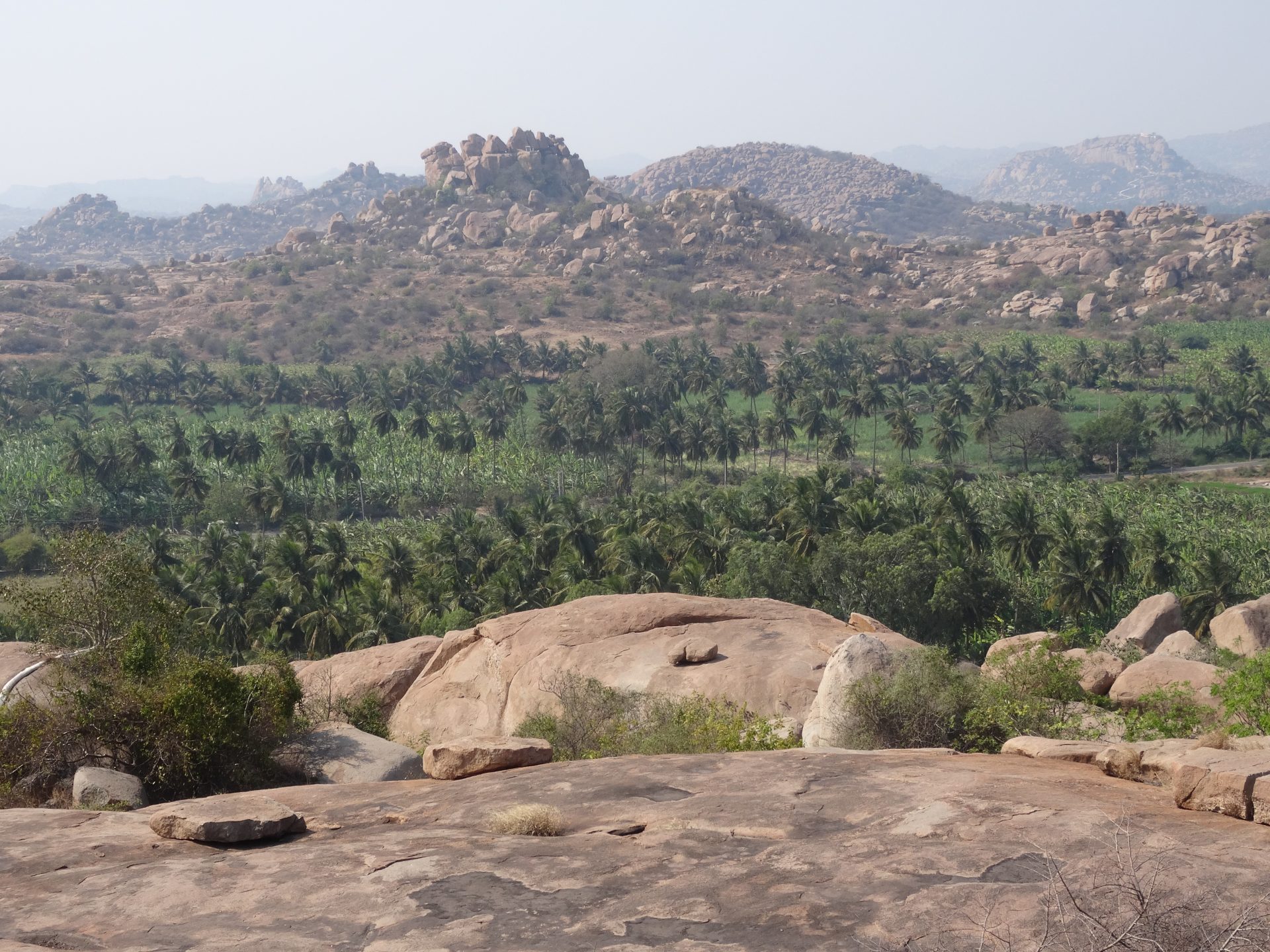
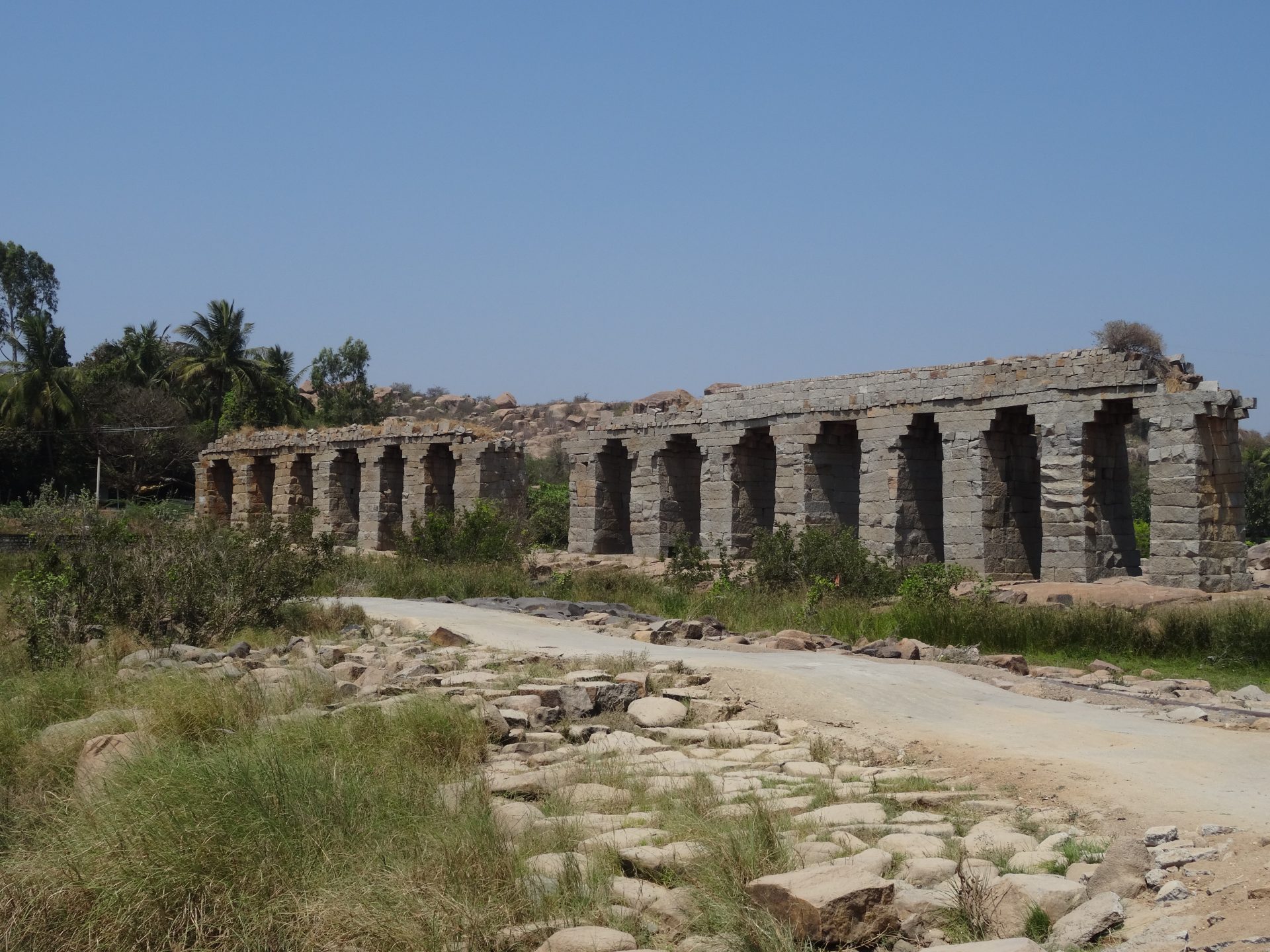
So began a final Muslim penetration of southern India that lasted until they succumbed to the British at the end of the 18th century.
A Hindu empire was overthrown by a Muslim one which was in turn overthrown by a Christian one. Despite their differing religions, what motivated all of these Imperialists was land, money, trade, wealth and power. India is a country moulded by Imperial rule. But they don’t have a monopoly of Imperialism. Consider the UK: the Romans, Celts, Vikings, Anglo Saxons, Normans all invaded the British Isles. The Spanish under Philip II, the French under Napoleon, the Germans under Hitler, all tried and failed.
Coincidentally, Salmon Rushdie’s latest novel Victory City LINK (English for Vijayanagar) is based upon the history of Hampi. It relates the lavish, playful smd mythical tale of Pampa and her creation of the city of Vijayanagar. She lived for 238 years and when she falls out with the ruler of the day, he orders his courtiers to blind her in both eyes with a hot iron rod Salman Rushdie could not have known when he wrote the novel, that in August 2022 he himself would be attacked by a religious fanatic, stabbed many times and lose the sight of one eye.
It’s now Friday, six days after Covid symptoms presented themselves and I’m still very fatigued. I don’t have the energy to do much which is very frustrating. This is not something I’m used to, so I don’t cope with it very well at all. My whole life I’ve suffered from rude good health. I’m a very poor patient and I must be driving Jo nuts. She looks after me with little complaint.
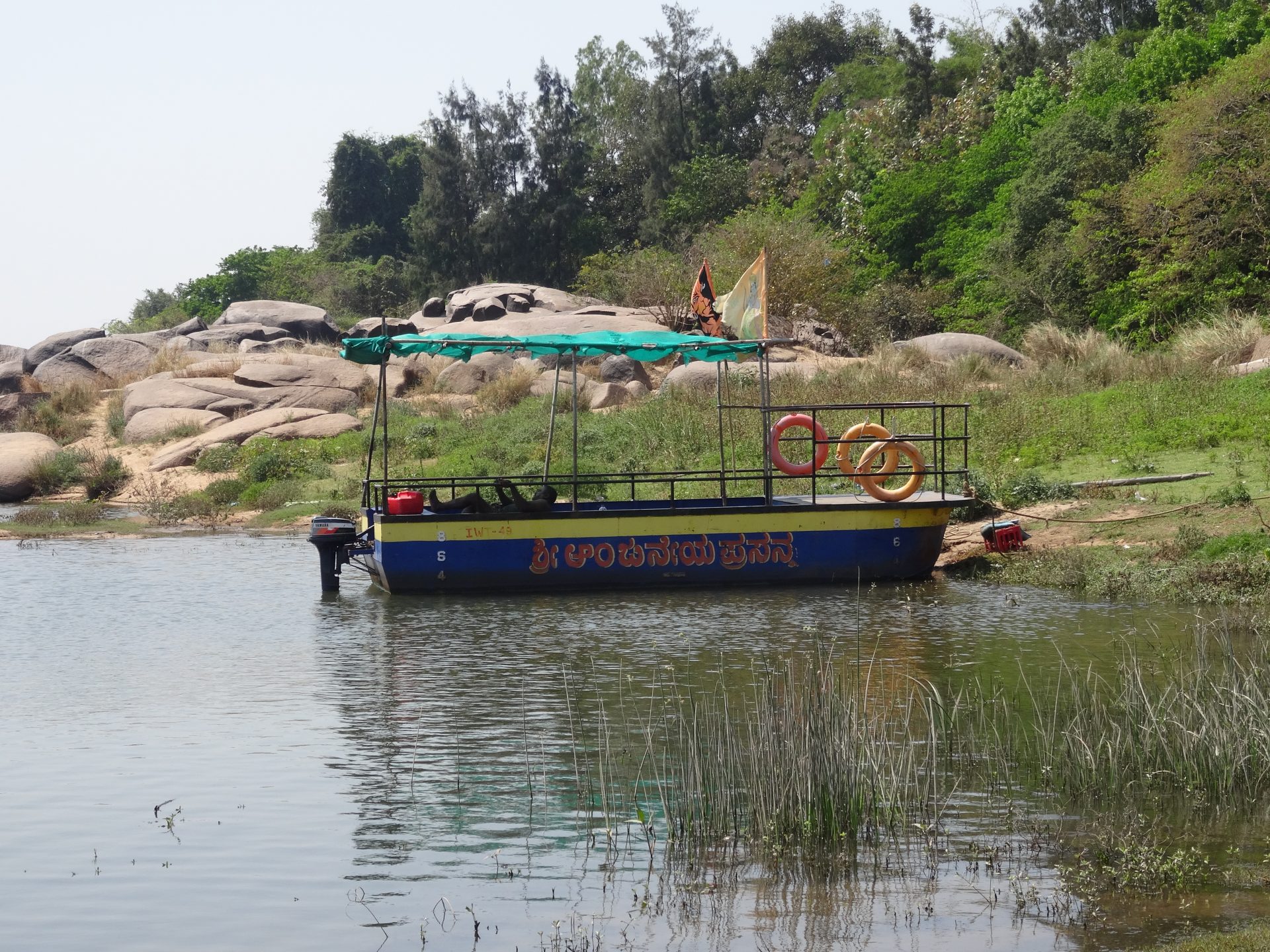
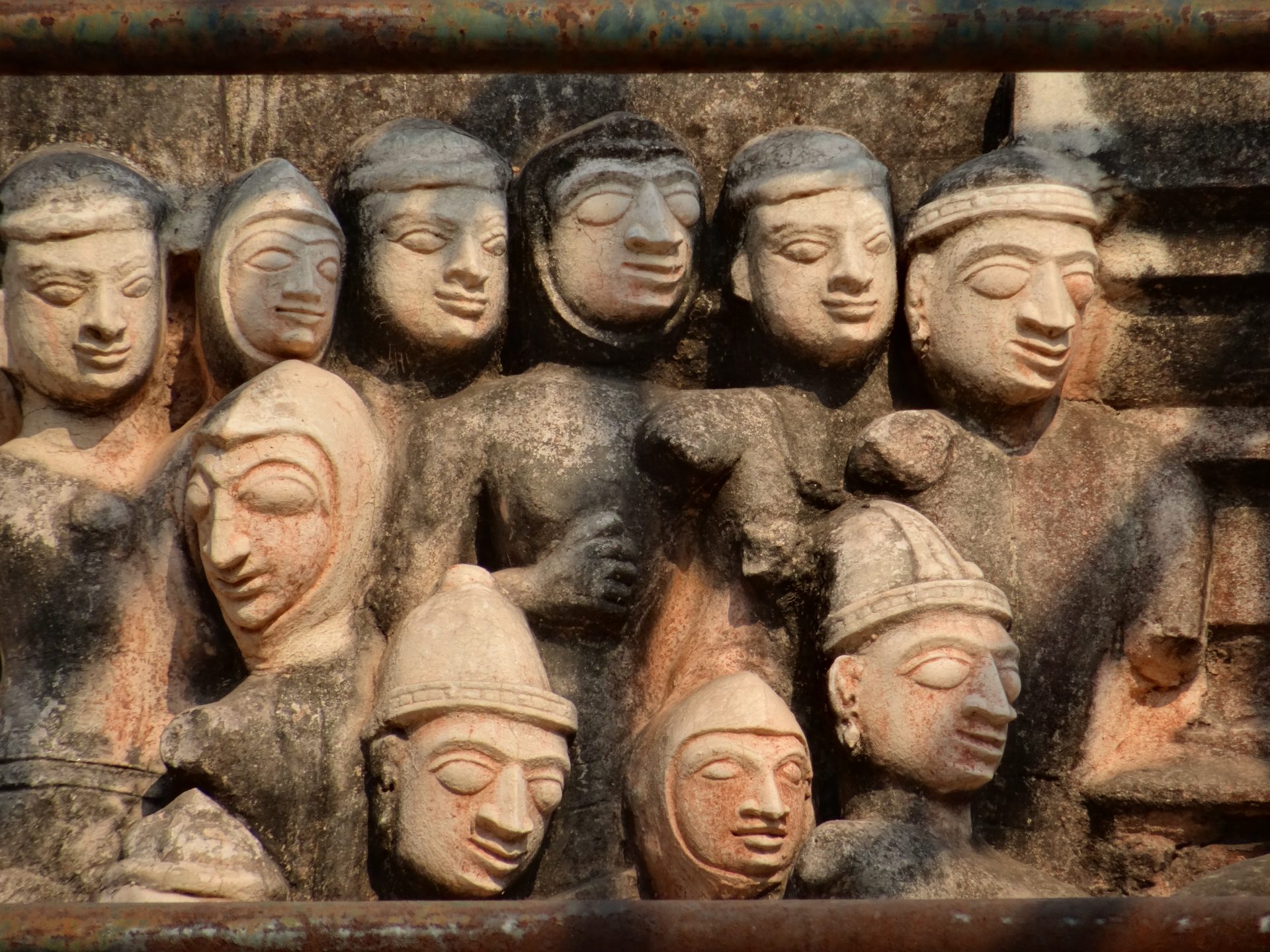
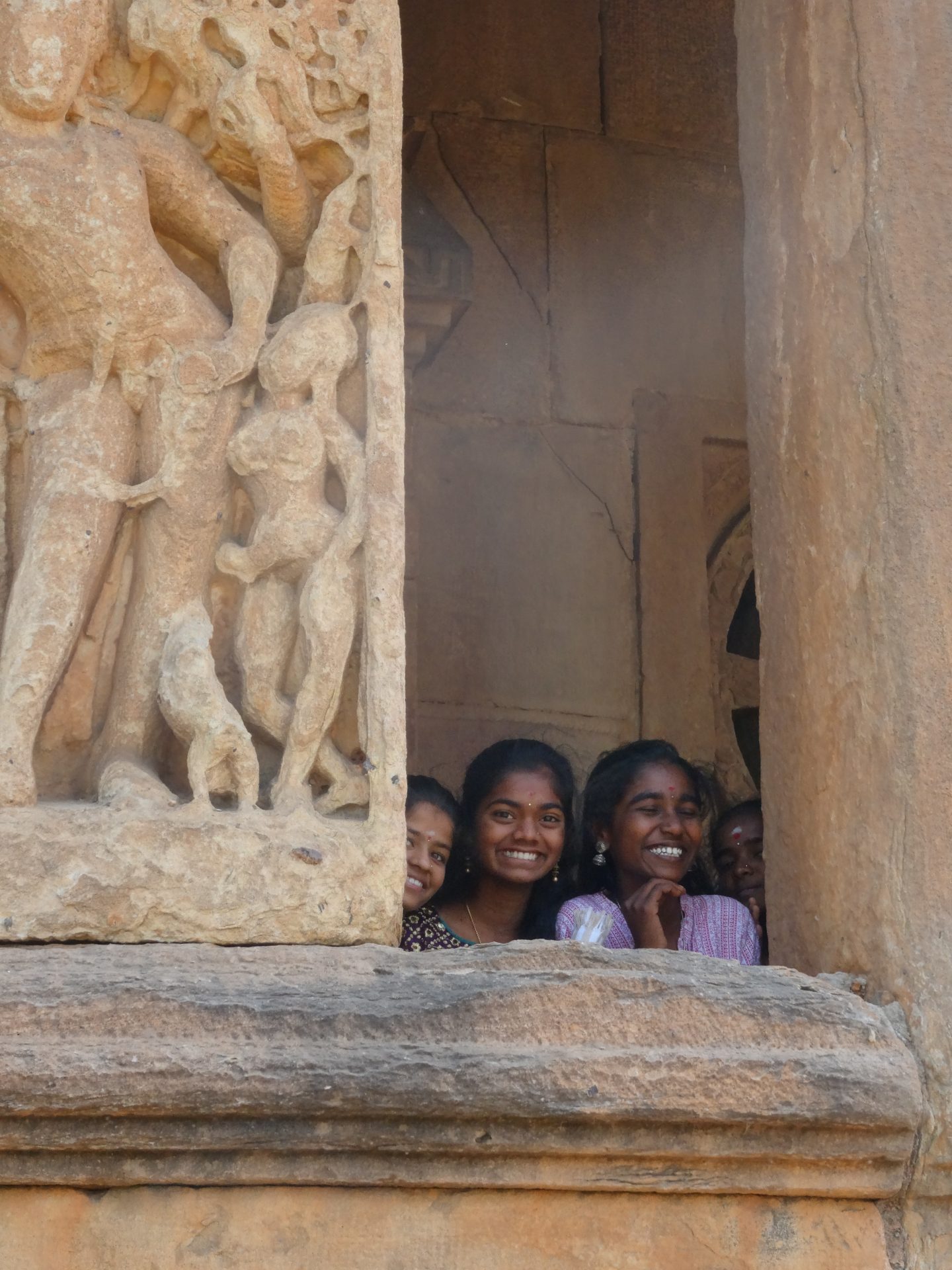
I’ve been in our small room under the ceiling fan for nearly a week. I’m too knackered to be bored. The light in the room is golden at dawn and dusk, and throughout the day I enjoy the background flute and drum music from the temple. I sometimes sit at the wire meshed window and look at the fifty metre high, tiered monumental entrance tower of the temple, and the wandering tourists and locals, some squatting to relieve themselves where they think they can’t be seen. A few days ago I tried sitting in a chair like a local outside the front gate, in the shade, on the street, to watch the ambling cattle. But I couldn’t cope with the heat. The courtyard is best and the woman next door is always there to serve cold fruit juices and light curries. My appetite is pretty good. Covid isn’t terrible, just exhausting.
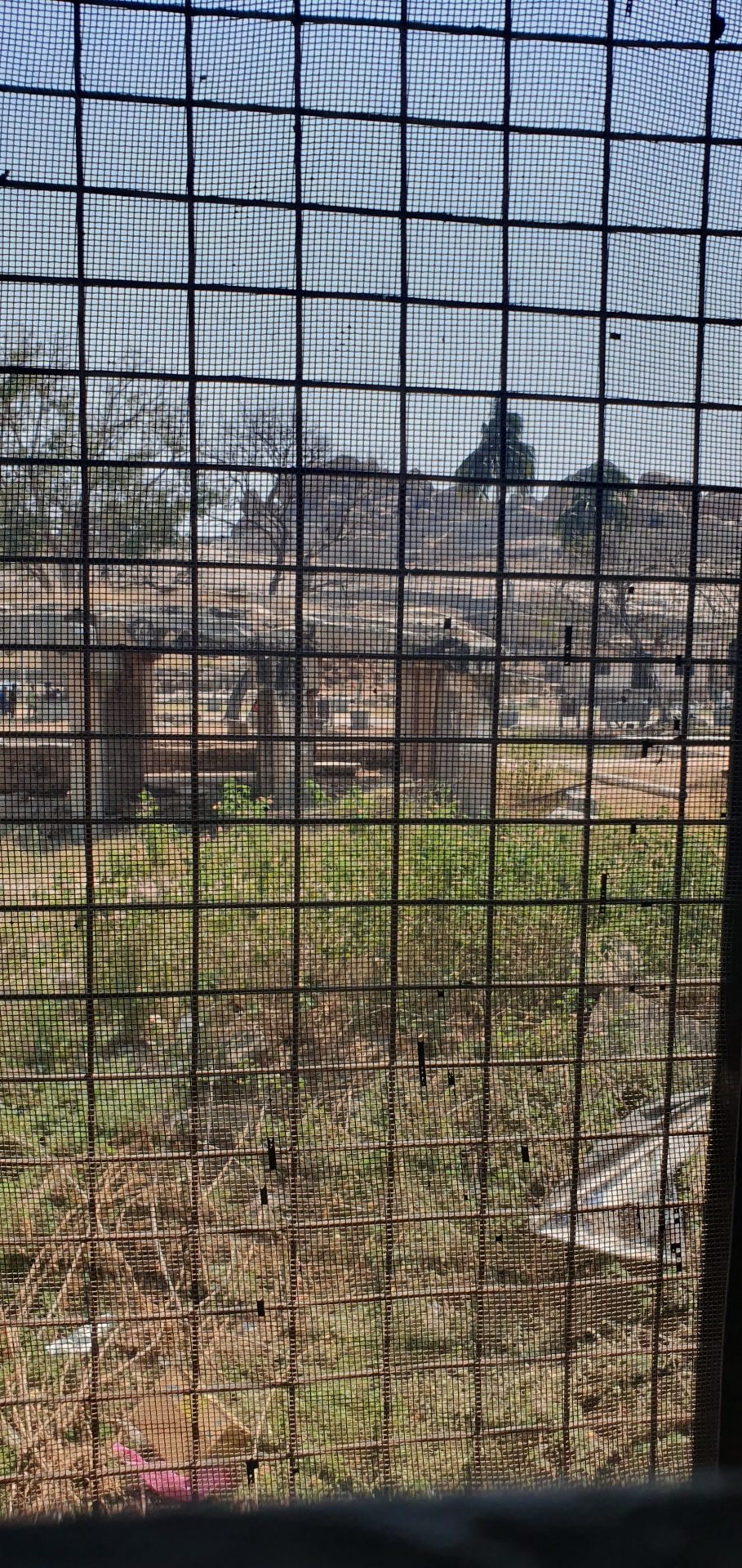
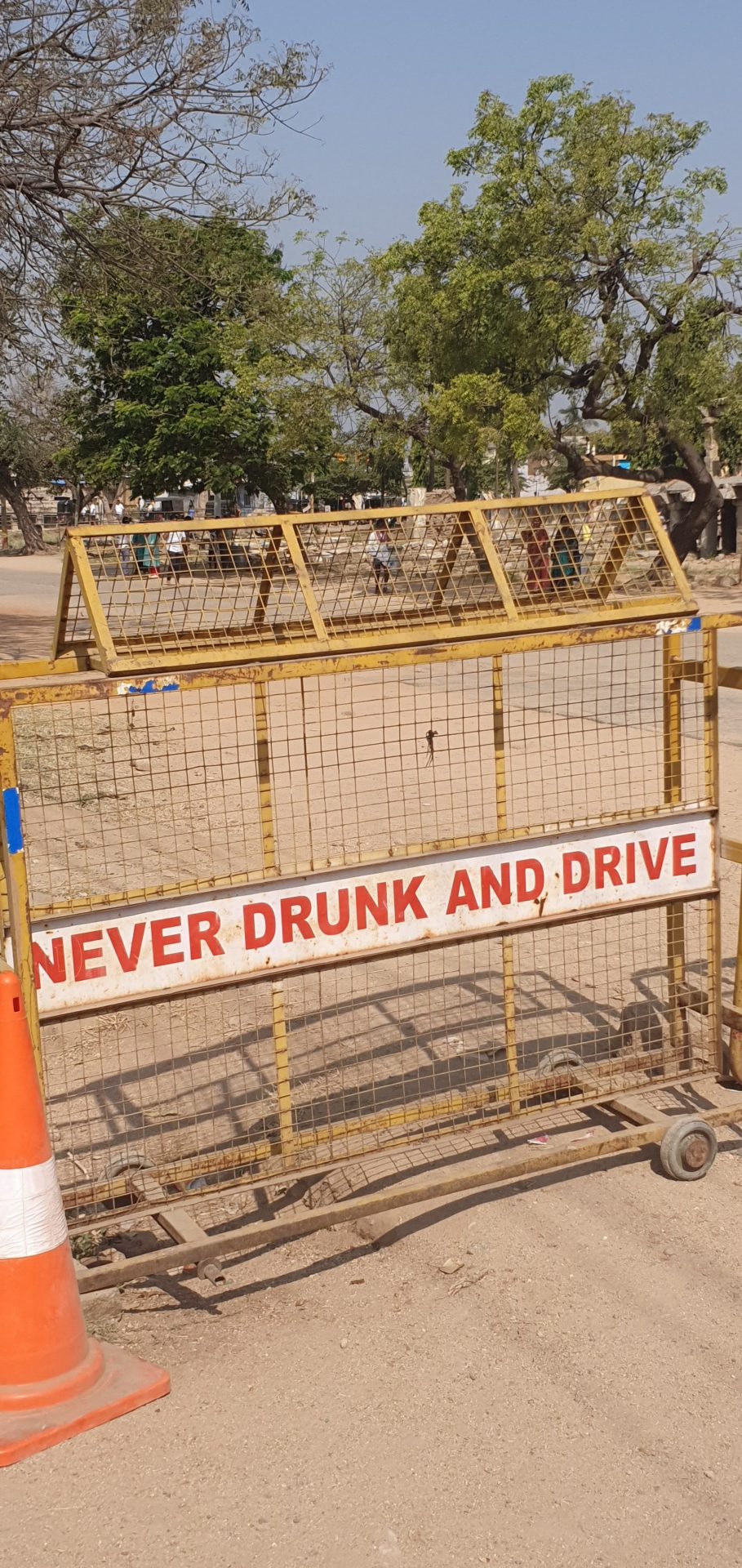
I suggest to Jo that it might be a good idea to venture out and we decide on an outing across the river to visit her ear cleaner under the Peepal tree. We wait patiently for half an hour on the river bank for the small ferry boat on the far side to fill with passengers before it sets off. We then have to wait on this side for it to fill again. As usual there’s no rush. We’re joined by a couple of pretend hippies. They’re Russians and their hippie getup is weirdly clean and meticulous – like something they might wear to a fancy dress party. They don’t smell like hippies and even their feet are clean.
The ear man is there under the tree and greets Jo like an old friend. He’s slim and dark with long black greasy hair and an endearing smile. He’s barefoot and wears a denim shirt and trousers. Hanging from his shoulder is a small leather pouch with the tools of his trade – steel probes, tweezers, scoops, cotton wool and assorted solutions. I ask him ‘what’s the oil?’ He says ‘medicine.’ We sit on a bench under the tree ready to begin the procedure.
We agree on a price but the more wax he finds the more it will cost. There are stories on the internet of bogus ear cleaners or ear wax scams. But Jo’s convinced that our man is legit and she videos his poking about in my lugholes. He explores deeply with the probe and tweezers and after a few minutes removes a brown ball of wax the size of a large pea. He places it on the palm of his hand and squashes it to reveal small pieces of grit. ‘That’s disgusting,’ says Jo. He does the same on the other side and concludes by gripping my ears and cracking them with a firm tug. If this is a scam it’s a very clever one. I feel quite clear headed. We’re having a postoperative chat when a couple of young lads walk by, one from England, the other from Colorado. I tell them about the ear man and they’re up for a good prod. The American guy looks with astonishment at what’s been removed from his left ear and says, ‘Hey, can I smoke this stuff’.
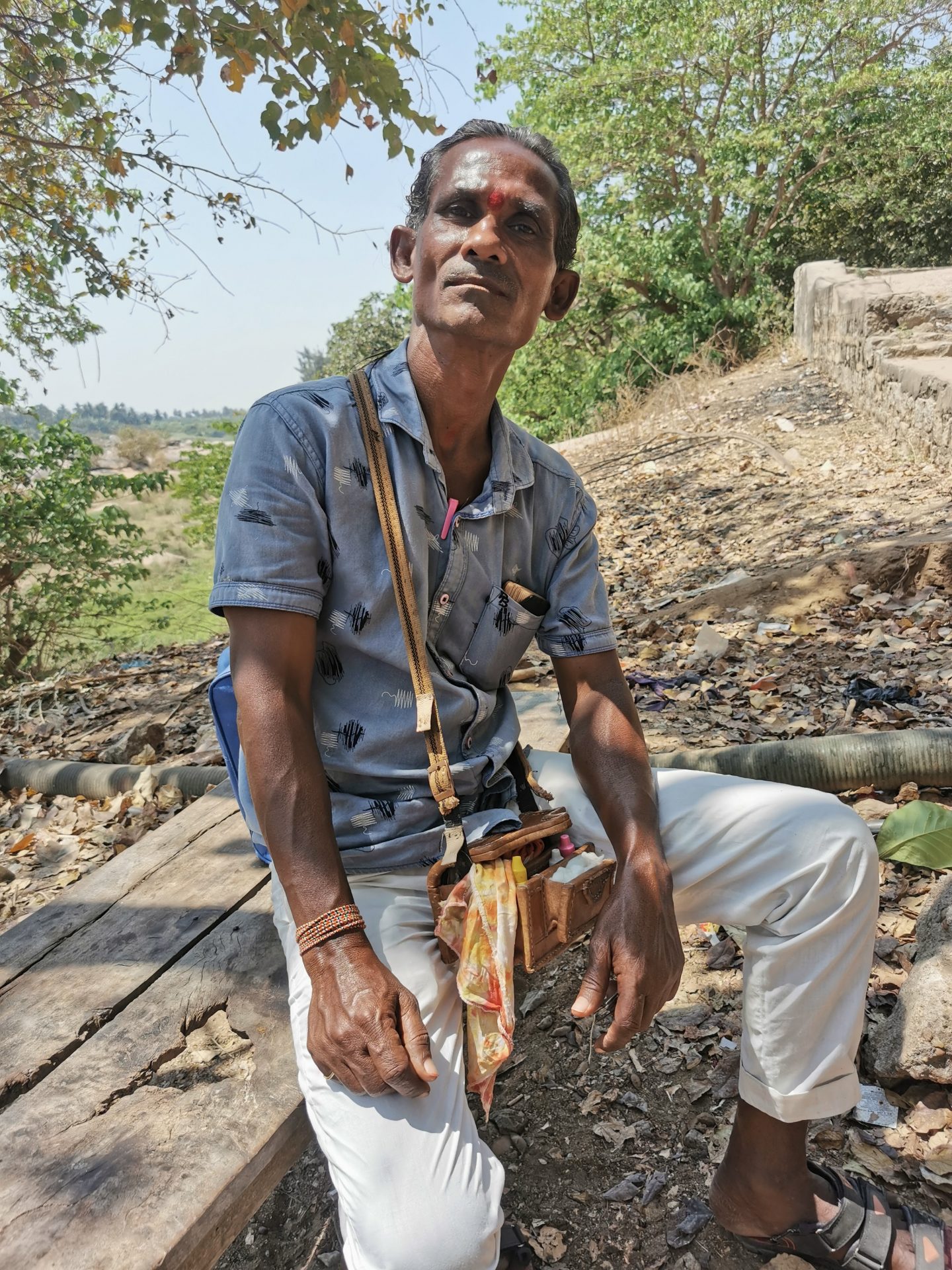
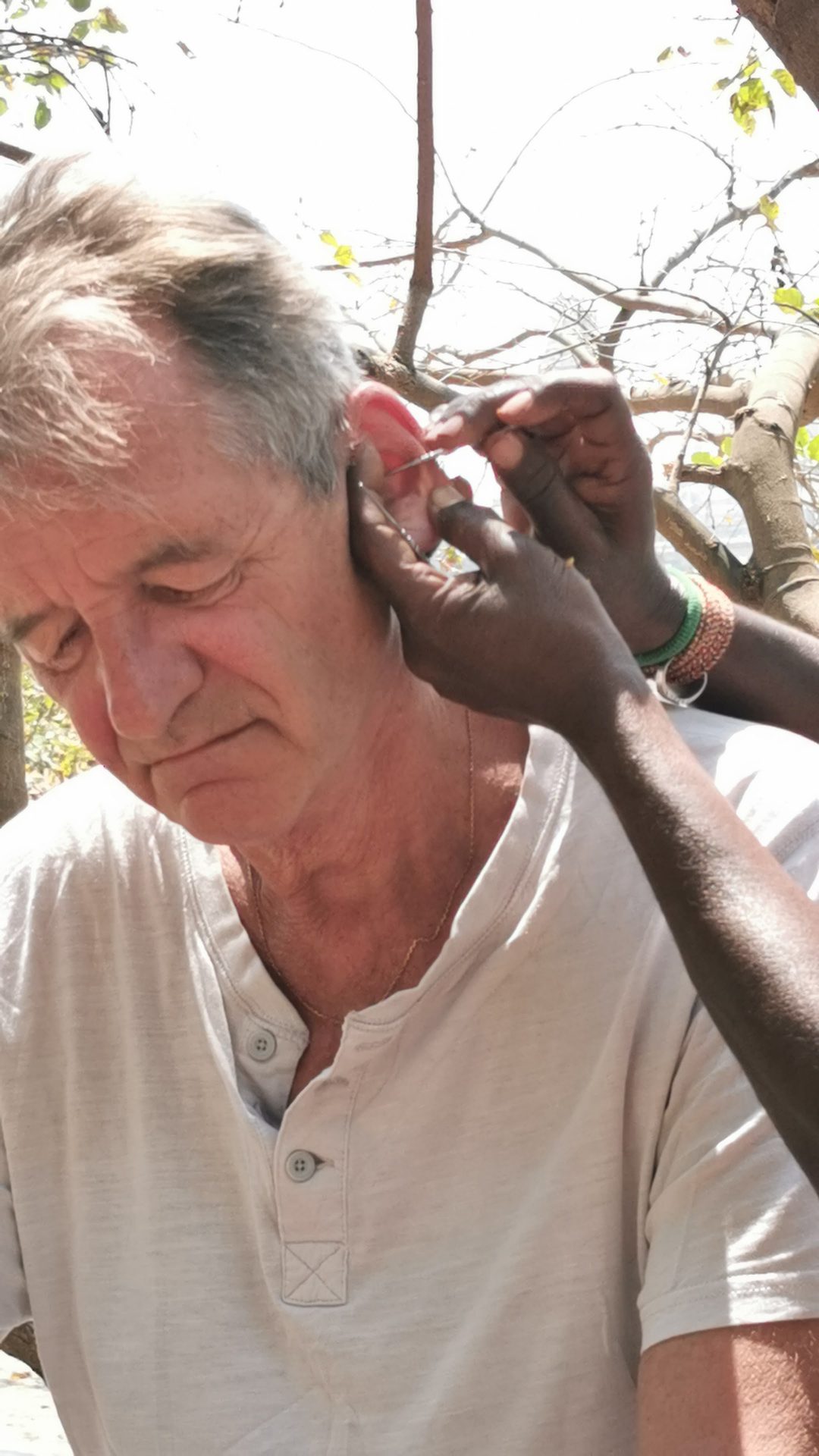
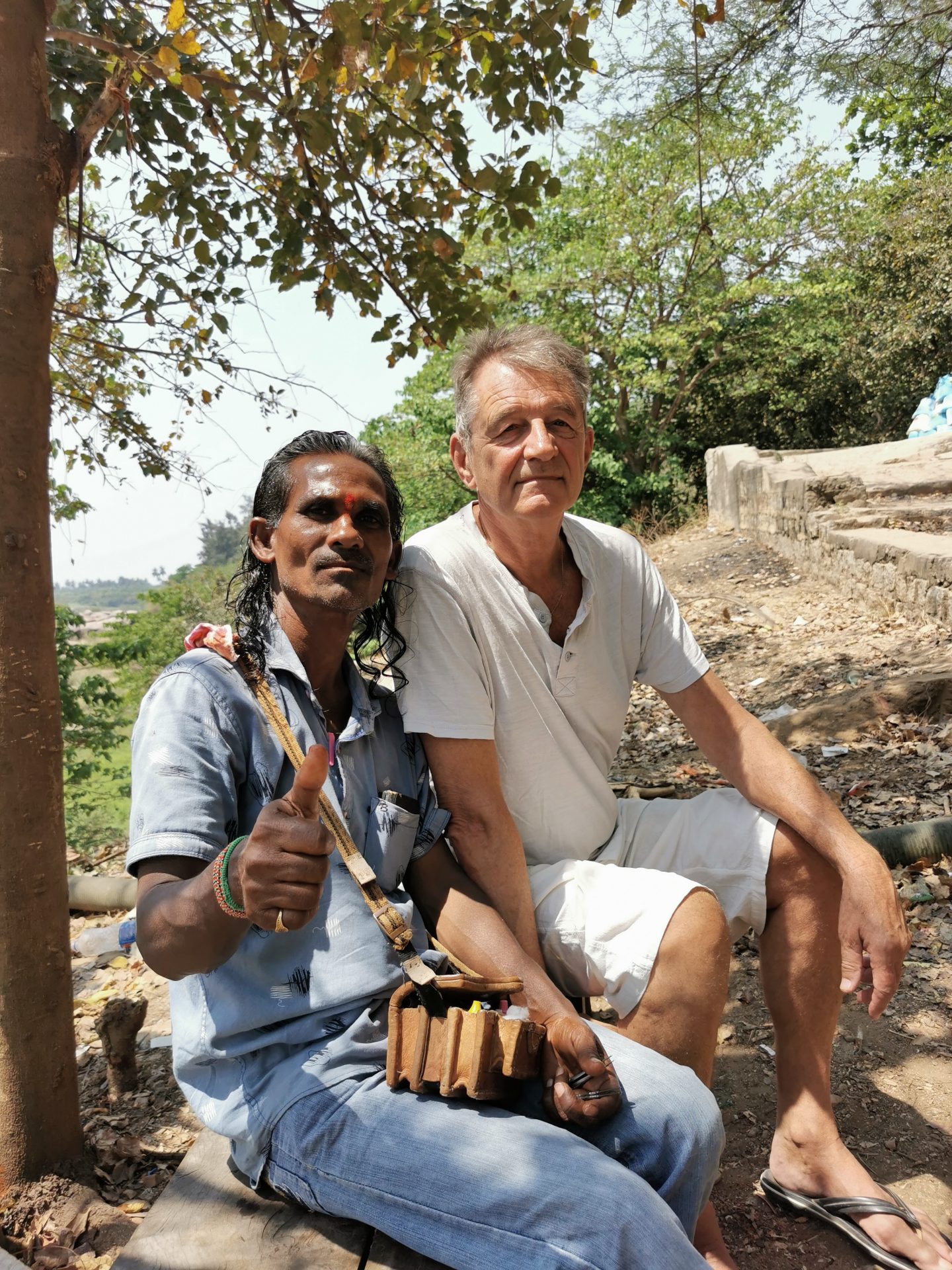
It’s time to travel north to visit the temples at Pattadakal, Aihole and Badami but I’m not full of vitality and can’t contribute effectively to decisions and plans. Jo will lead the way. I don’t participate in most of the temple visits – Jo deposits me on a shaded bench where she knows to find me later. I’m happy to sip water and watch Indians for an hour or two. But I love the very ancient and intricately carved 7th Century cave temples hollowed out of the sandstone cliffs in Badami, and the nearby Bhutanatha group of temples built over the Agastya lake.
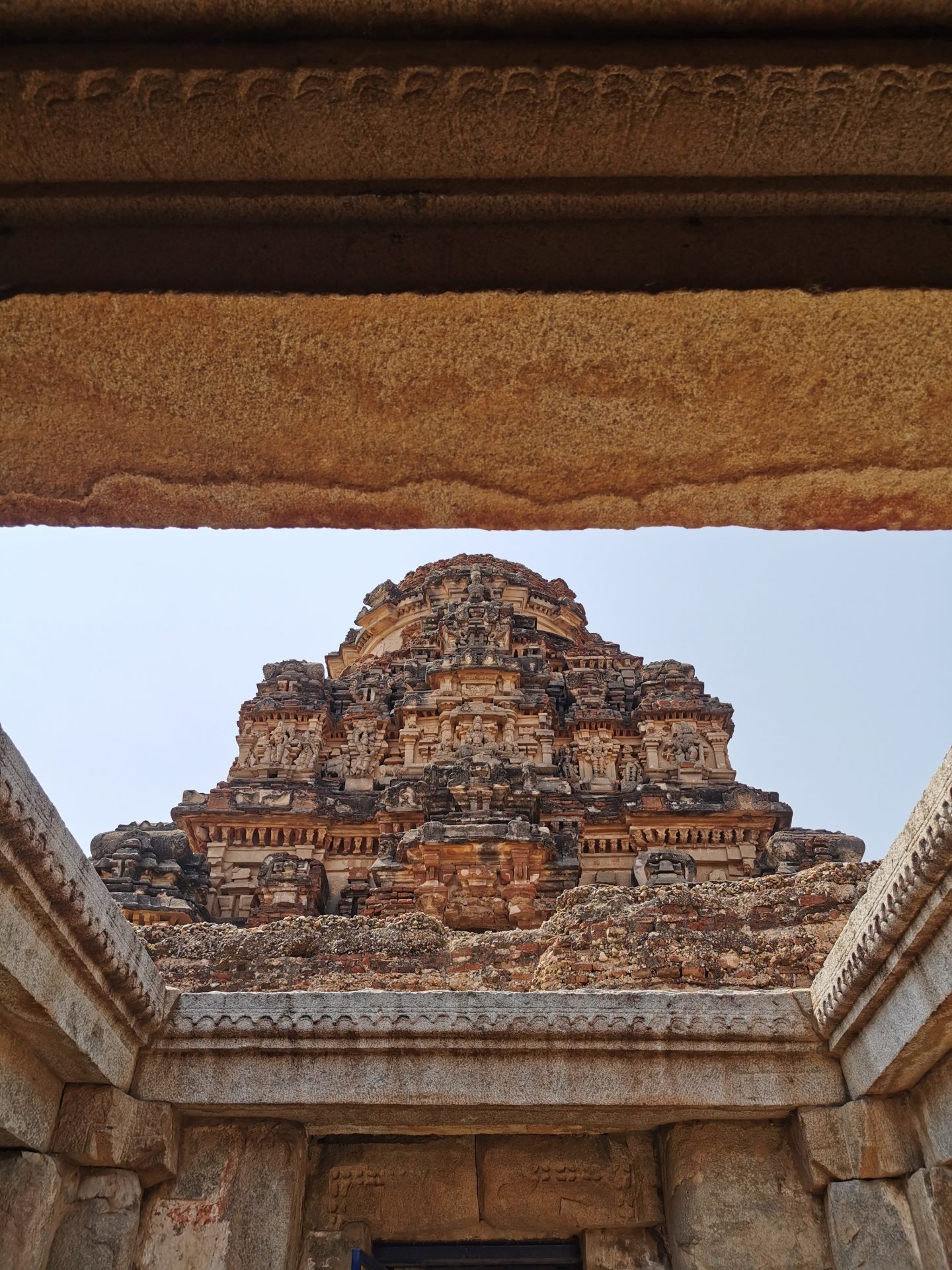
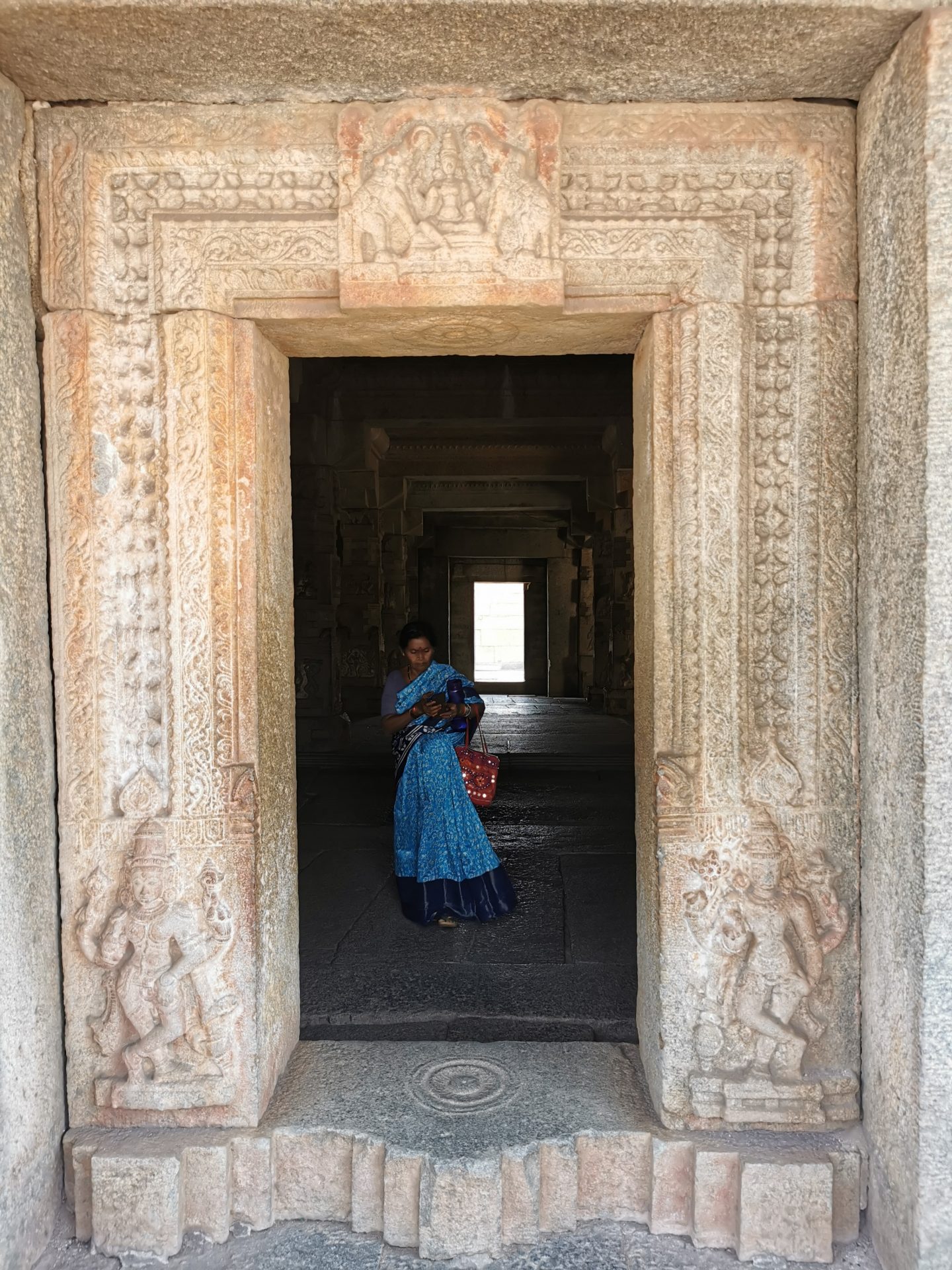
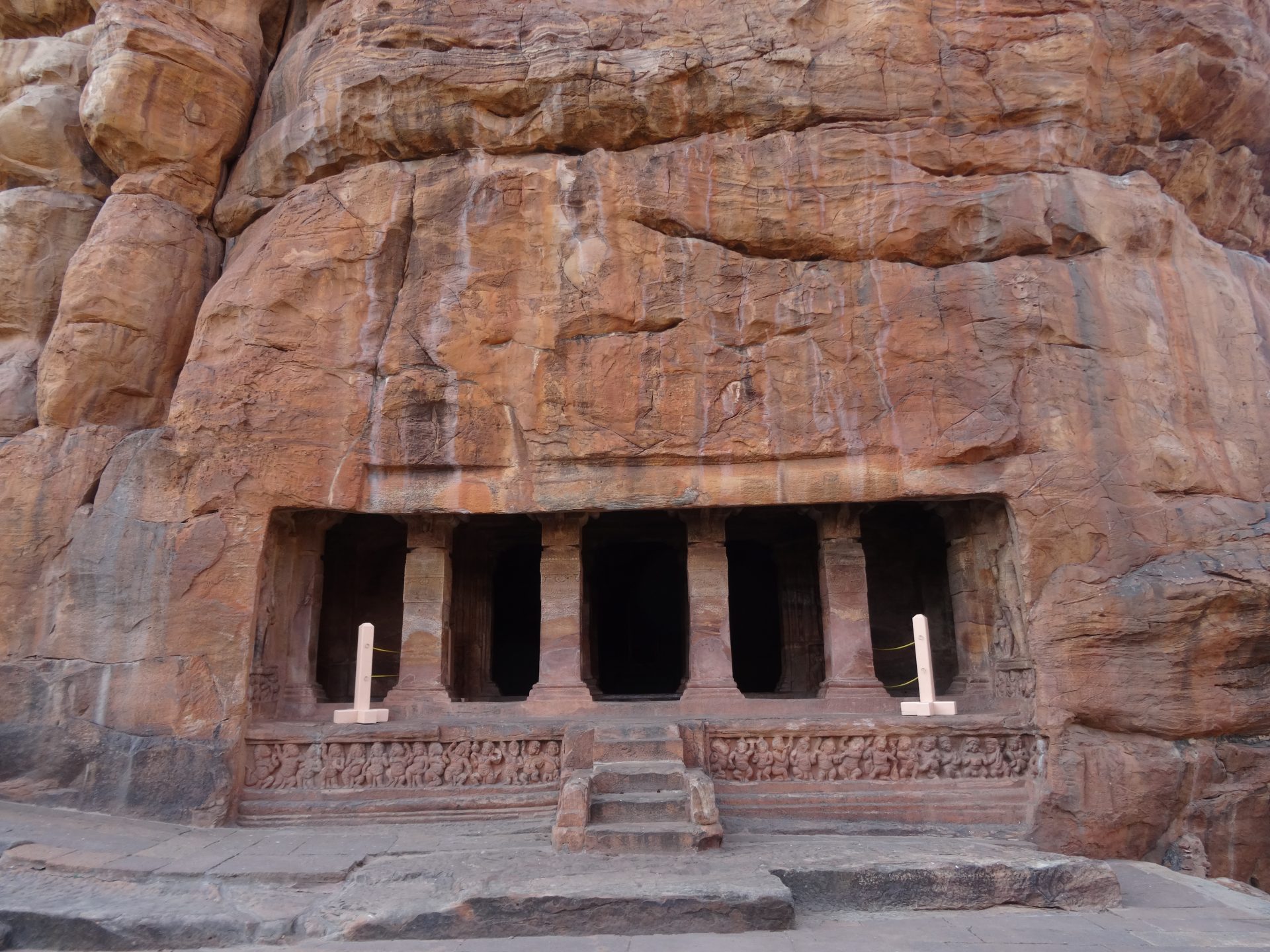
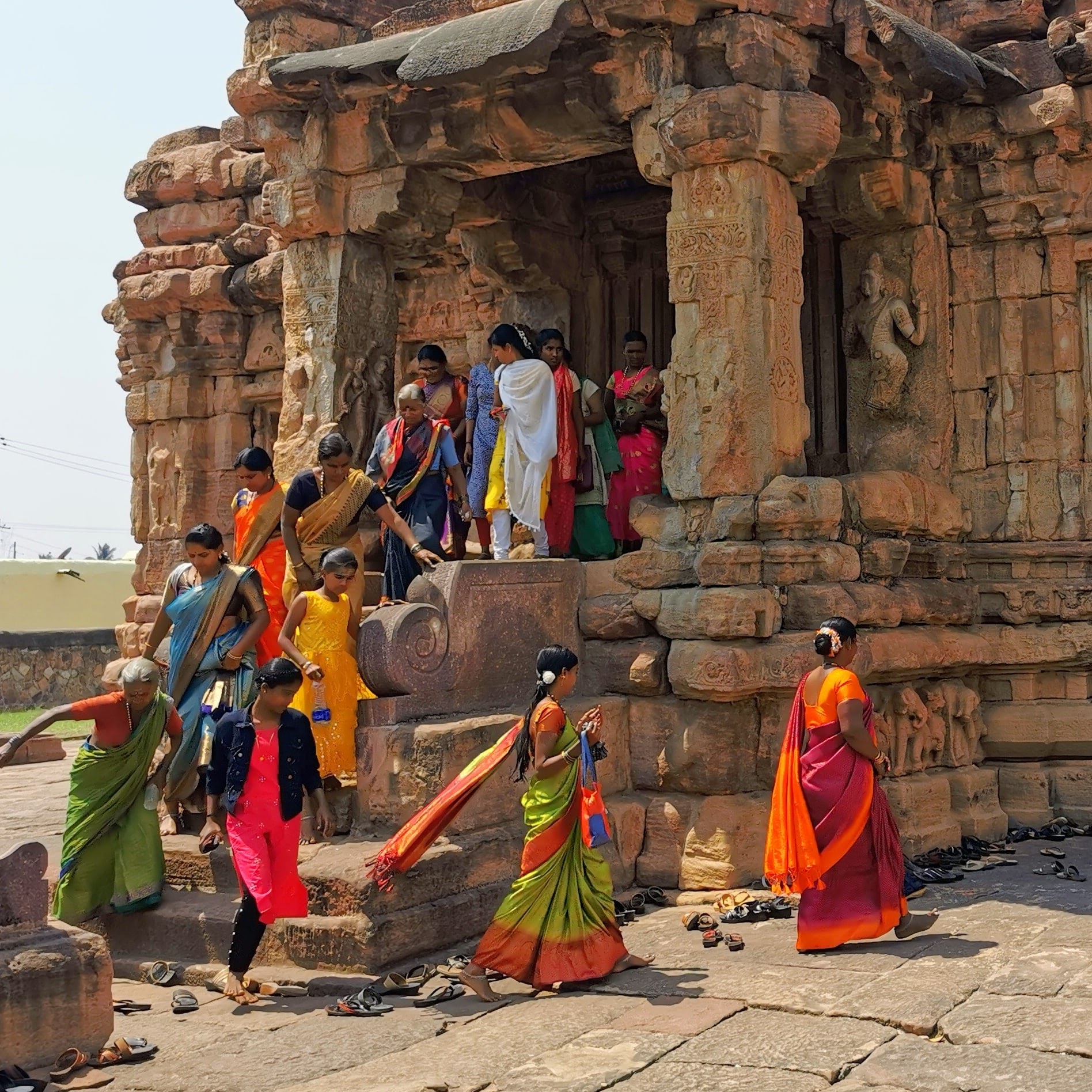
We take the train back to Hubli Junction where we have a room booked close to the railway station for an early start tomorrow morning. Here we find the best culinary delight of our Indian journey. Jo has discovered online The Rasoi Veg Thali, a small 1st Floor restaurant a short walk from the station. We’re here for lunch which is a steel plated Thali, a selection of small dishes constantly replenished by attentive waiters till you can’t eat any more. It is fantastic. Here is the menu in full so you can recreate it at home: Farsan:- mini samosa, khaman dhokla. Sabji:- paneer patiyala, aaloo lasuniya, flower watana. Dal:- tikha dal, gujarati kadhi. Roti:- phulka, jowari rotla. Rice:- plain rice, moongdal kichadi. Sweet:- jalebi. Price R290 (£3)
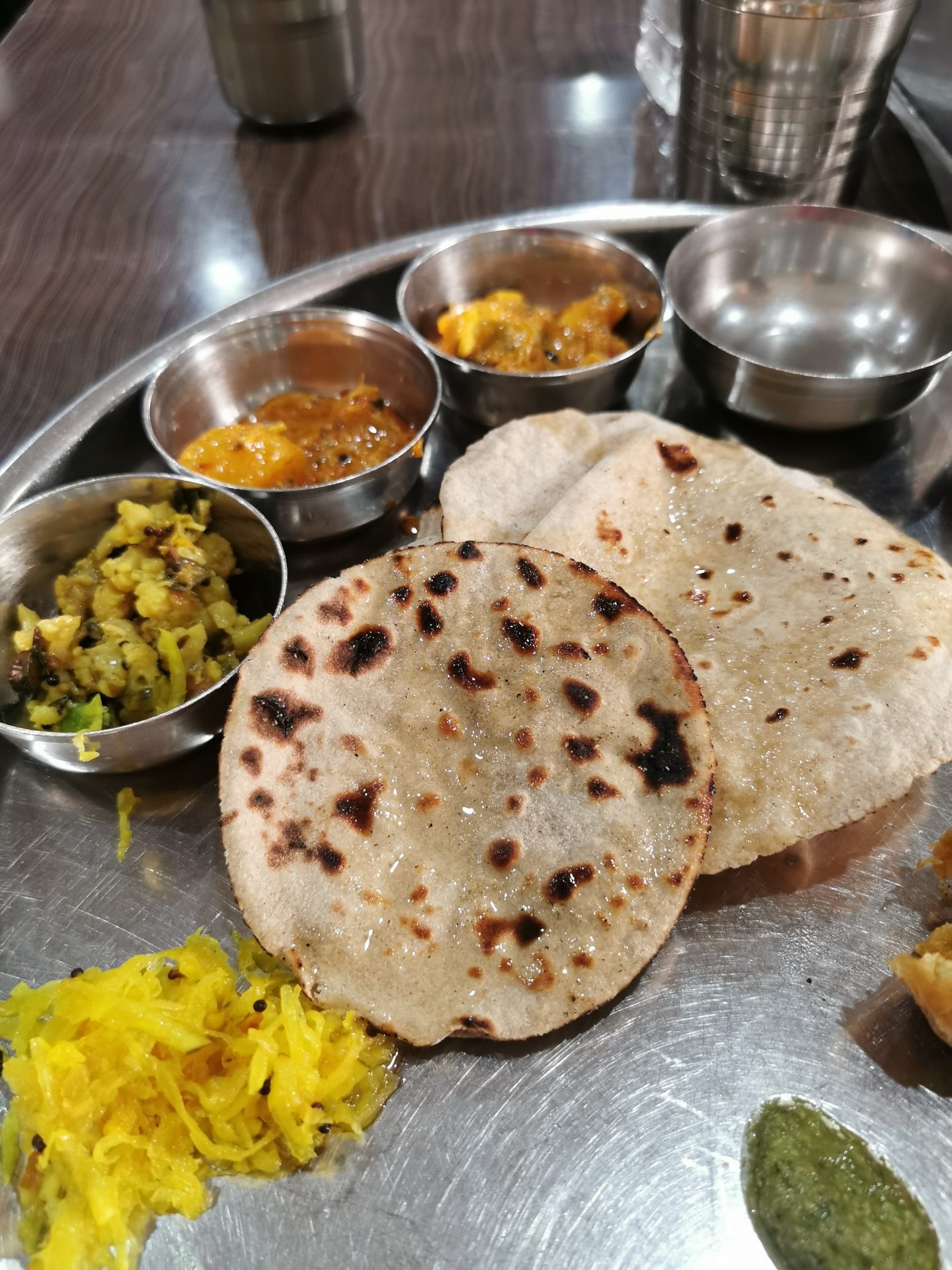
It’s a splendid six hour train journey from Hubli to Madgaon in Goa, along a winding mountainside railway track, down through the lush forested foothills of the Western Ghats to the coast. Goa was Portuguese India for 456 years and was annexed to India as late as 1961- it retains a flavour of its long Portuguese domination. It is India’s smallest state and it’s wealthy with the biggest GDP per capita of all the Indian states. Millions of tourists visit Goa every year for the beaches, the sunshine, the yoga and the food. We’re going to have a languorous week here on the south Goan beach of Patnam.
In Madgaon, the owner of the Seaview Hotel, Edmond, is there to meet us for the drive to Patnam Beach. It’s not a complaint, just an observation that the Seaview Hotel doesn’t have a sea view. But it does have a lovely swimming pool overlooked by our room’s balcony. It will be home for the next week. From there it’s a short walk down a shop lined lane to the beach where, judging by the empty sunbeds, Patnam is not particularly busy. The faces are pale white or sunburnt red, European and Russian. Patnam Beach is a lovely arc of sand bookmarked by high rocky outcrops. The bars, restaurants and beach cottages are all rustic affairs, most of the cottages being dismantled at the end of the season. This is a great place to rest and recuperate. Here is a not untypical day: A walk down the lane to the beach, breakfast at a beach side restaurant, a swim in the ocean, sunbathe for 30 minutes, a swim in the ocean, sunbathe for 30 minutes, a walk along the beach, a beer, a swim in the ocean, read in the shade for an hour, birdwatch for a while, a wet shave and a haircut, a swim in the ocean, a sleep on the sunbed for a while, another beer, a walk up the lane to the hotel for a swim in the pool. Freshen up for dinner back at the beach. I can cope with this. I know I can. Jo’s days are similar but for shave and haircut substitute painted toenails on the beach. Our fellow guests at the Seaview are a young family from Russia: mother, father, a young boy, a baby and the mother-in-law. Father has his first large bottle of beer after breakfast and is pissed all day. Mother-in-law is a fulltime childminder by the pool. There’s an elderly couple from Kazakhstan, the man keen to talk to us but we have no common language.
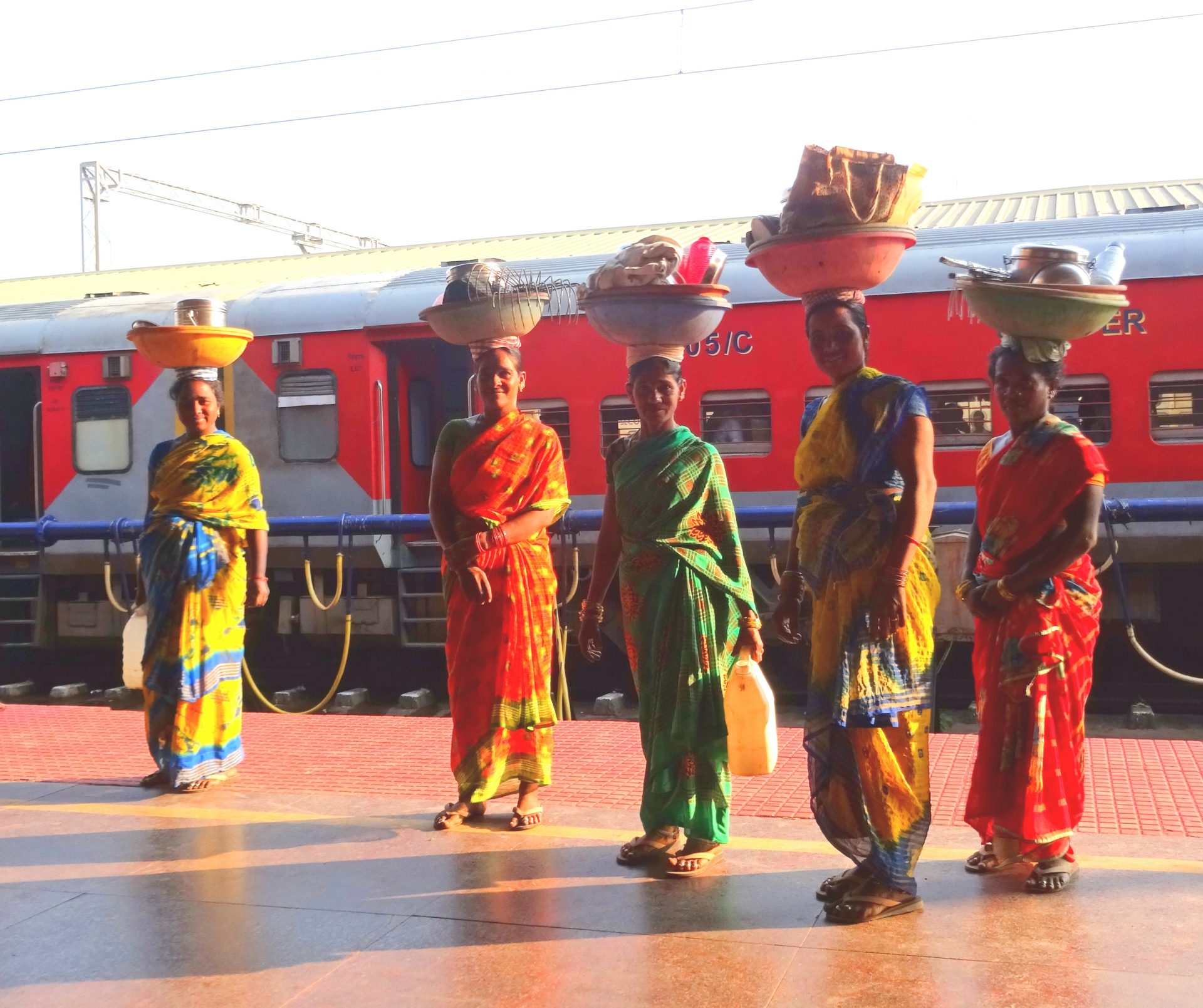
We visit nearby Palolem Beach for the day where there’s a bigger arc of sand, more substantial development and more people. If you want to know what it looks like watch Matt Damon as Jason Bourne in the film The Bourne Supremacy where Palolem is his hideaway beach. We’re having breakfast at a table overlooking the ocean and strike up a conversation with 78 year old Liam from Suffolk. He talks happily for a couple of hours about his life and times: living in London next door to Chrissie Hynde of The Pretenders, work as a graphic designer for Purcell publishing in the 1970s, the travails of divorce and post divorce relationships, spending every winter now in southern India, falling and breaking his arm upon arrival here in November, the cost of medical insurance for old geezers like him (£15 a day!), the lively and eccentric hippy scene in Gokarna just south of here (we’re going next week). Liam is content but lonely I think. We spend the day relaxing on Palolem (see daily activities above).
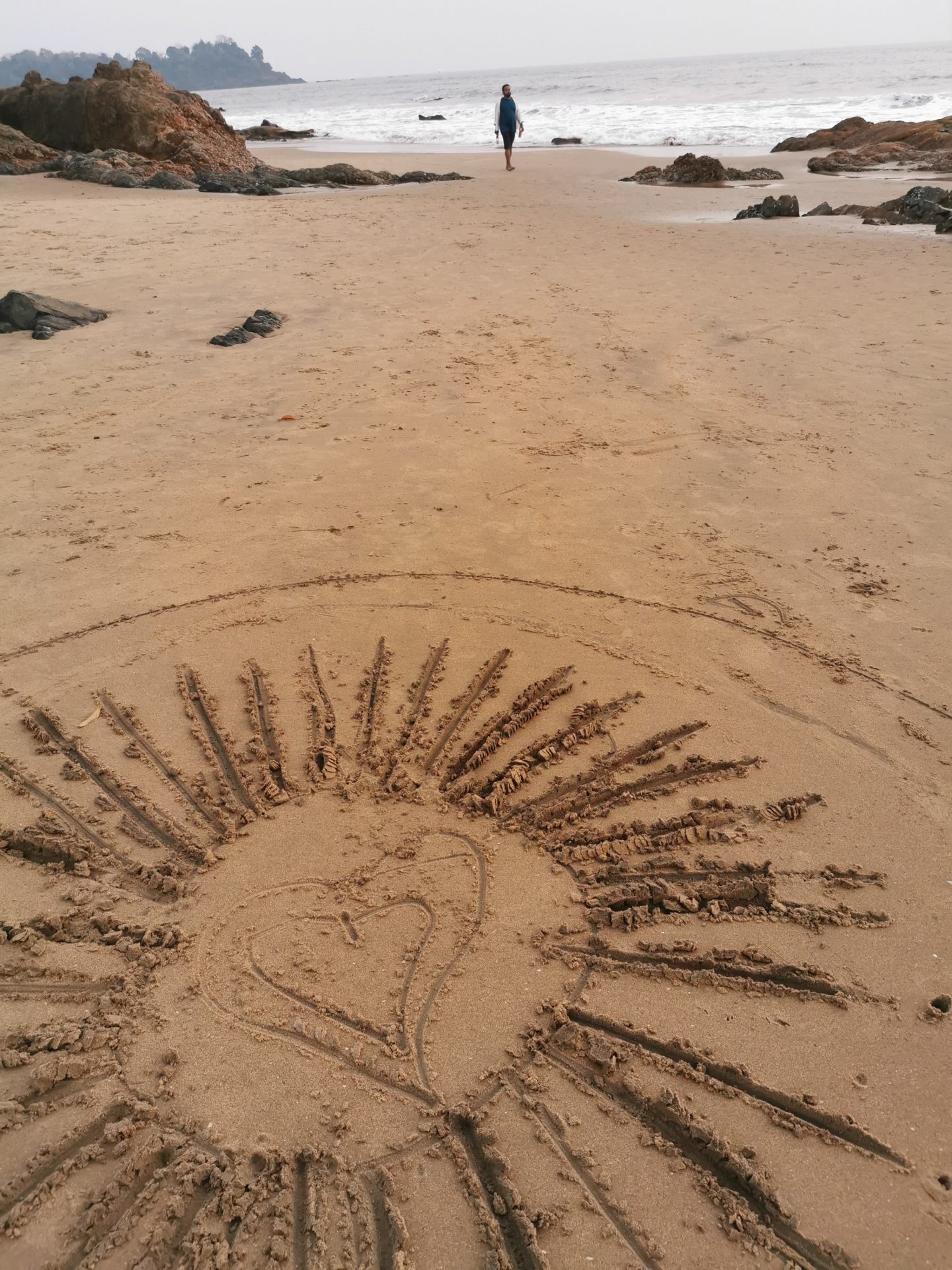
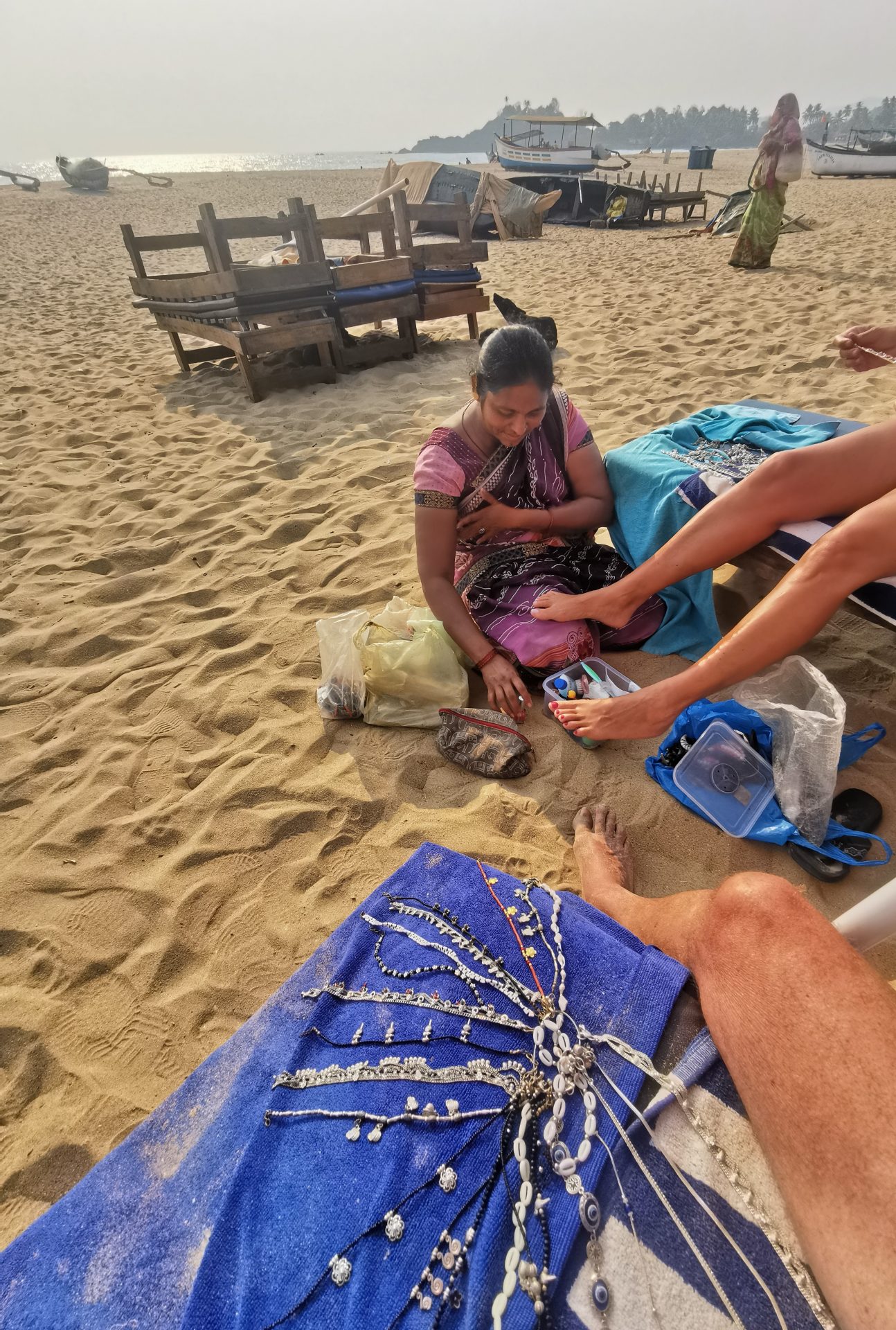
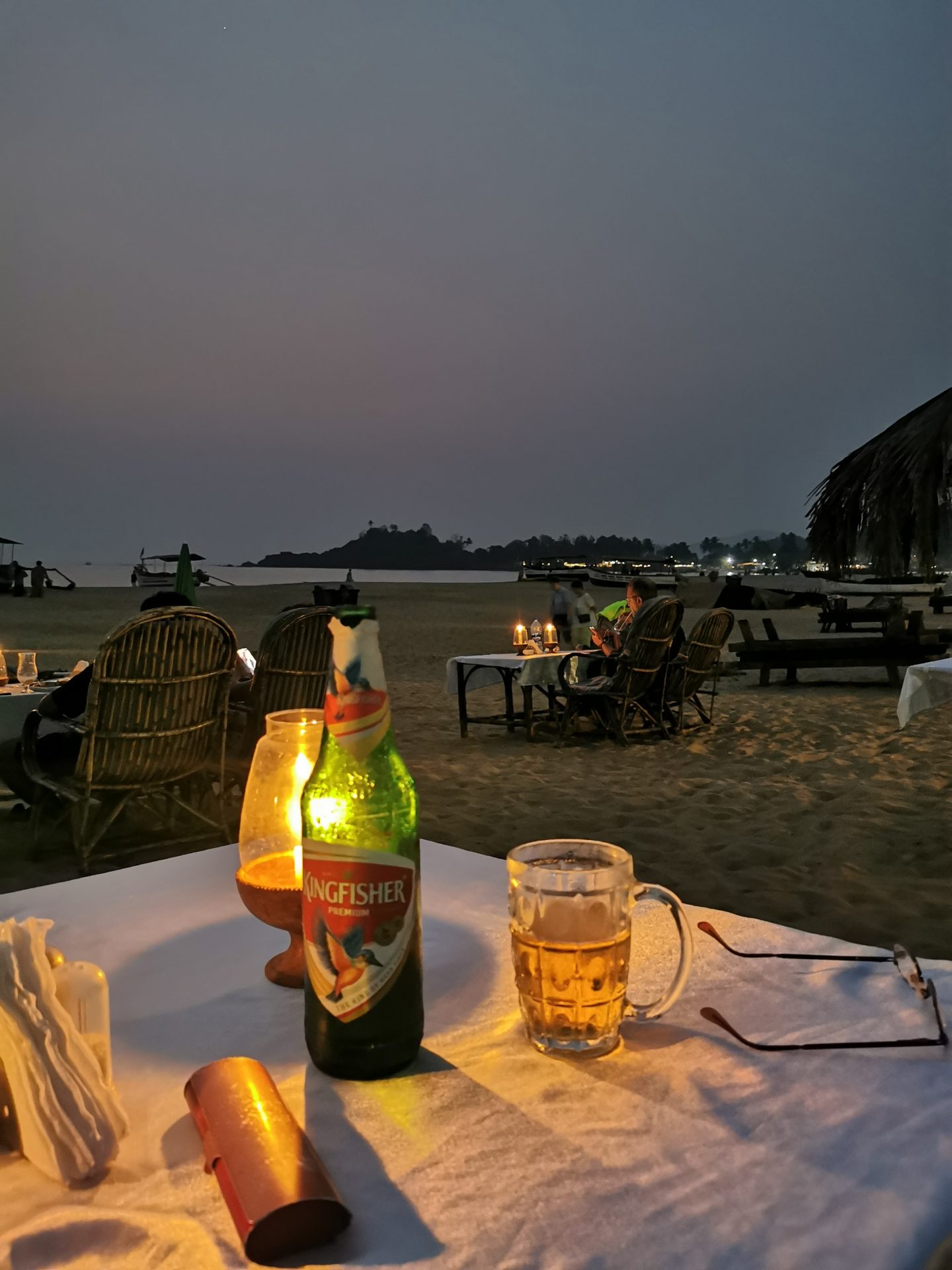
The food in Patnam is excellent. The fish is fresh, plentiful and not too expensive. One evening I order a barbequed Kingfish. I’ve seen it on ice outside the restaurant and it looks great. But the grilling dries it out – it’s bland and tasteless. The following night I order plain old fish and chips. Once again the fish is Kingfish. I discard most of the batter and the fresh fleshy white fish, having been deep fried, encased in batter, is moist and full of flavour. Over the course of the week we try out several beach restaurants where Jo eats Goan fish curries and pollichathu – a spicy roasted fish in a banana leaf.
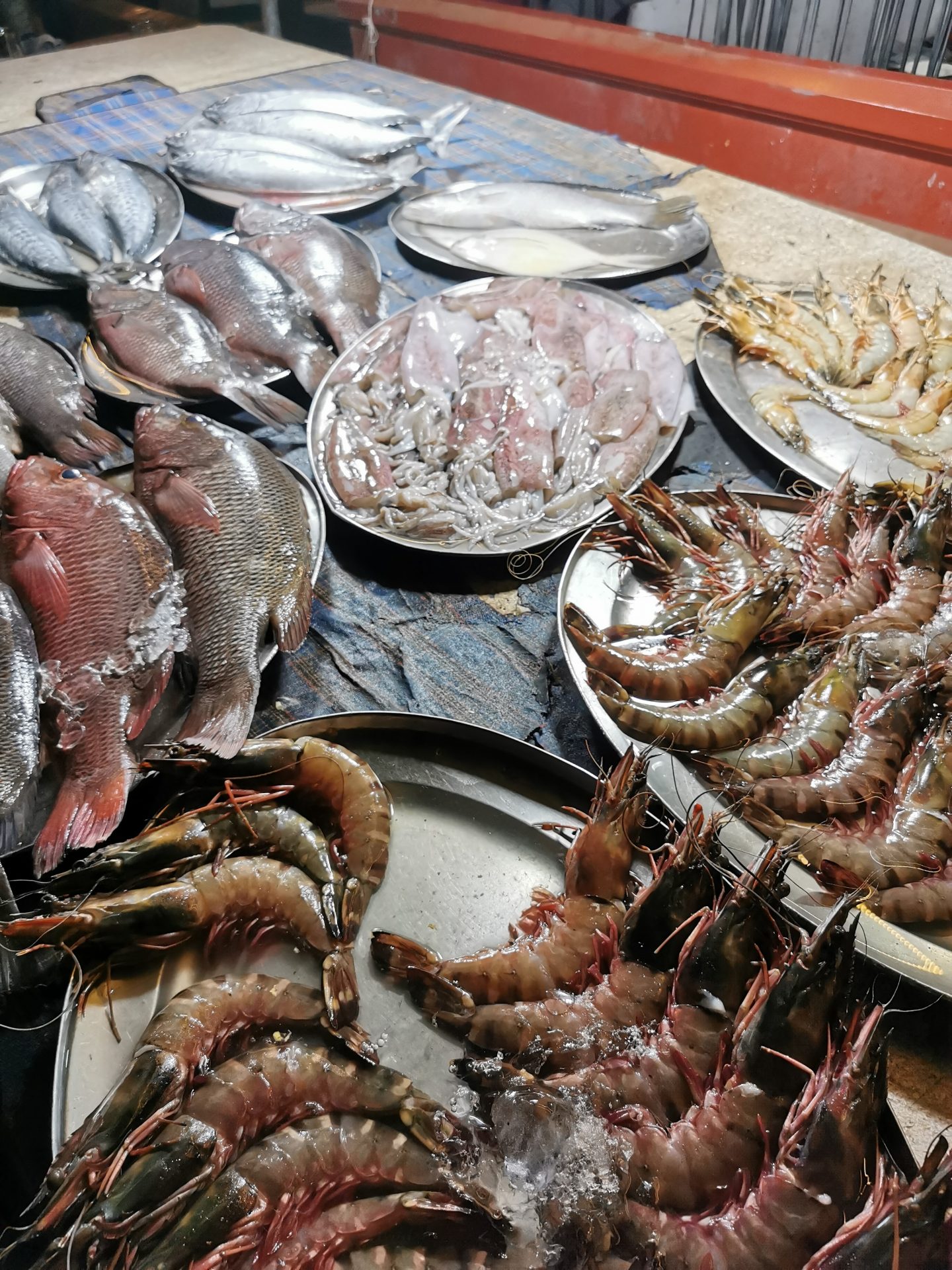
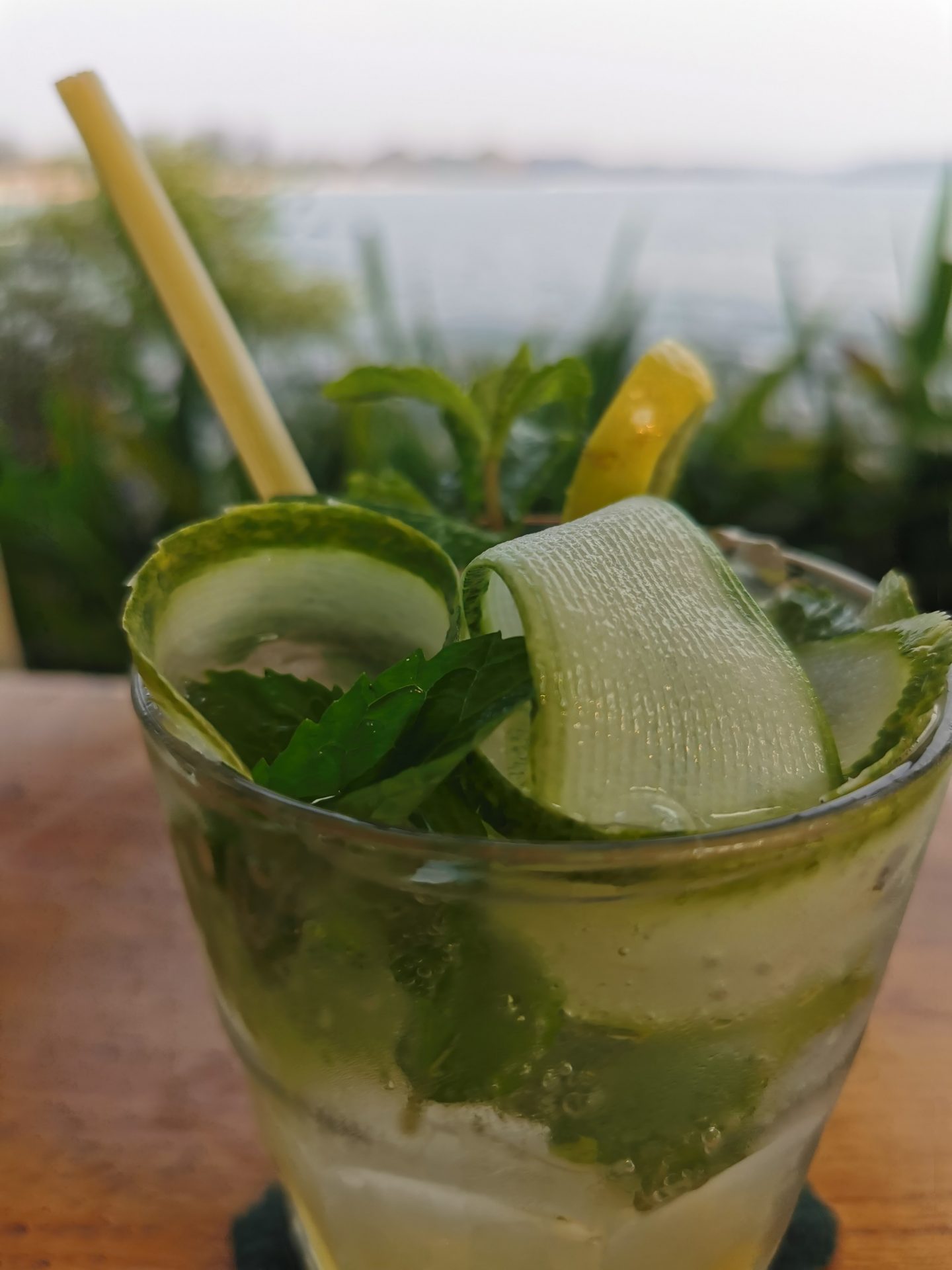
In six days time we plan to take the train for the 12 hour journey from Karwar just south of here to Alleppey in Kerala. It’s been our practice to just turn up at the railway station and buy a ticket. But for such a long journey we want to prebook first class tickets online (£85 for two). This is impossible without an Indian telephone SIM card and a credit/debit card issued by an Indian Bank. Not a great situation for us tourists. Edmond says he’ll book it for us so I sit with him in reception whilst he tries to do this. After an hour I know he’s quietly regretting his kind offer, but with the Indian patience of waiting for a train he exhibits the same patience booking one. Eventually, with the help of his cousin on the other end of the phone, he succeeds.
Encounters with a lot of the people in Goa have been different to those in Kerala and Karnataka. Jo’s had enough of the hassling stall and beach vendors and the dodgy rickshaw drivers. Many of the workers are from out of state (some from as far away as Kashmir). They’re here just for the season which is nearing its end and we think they’ve had enough of tourists. Jo misses the genuine smiles and greetings of real locals. It’s time to move on.
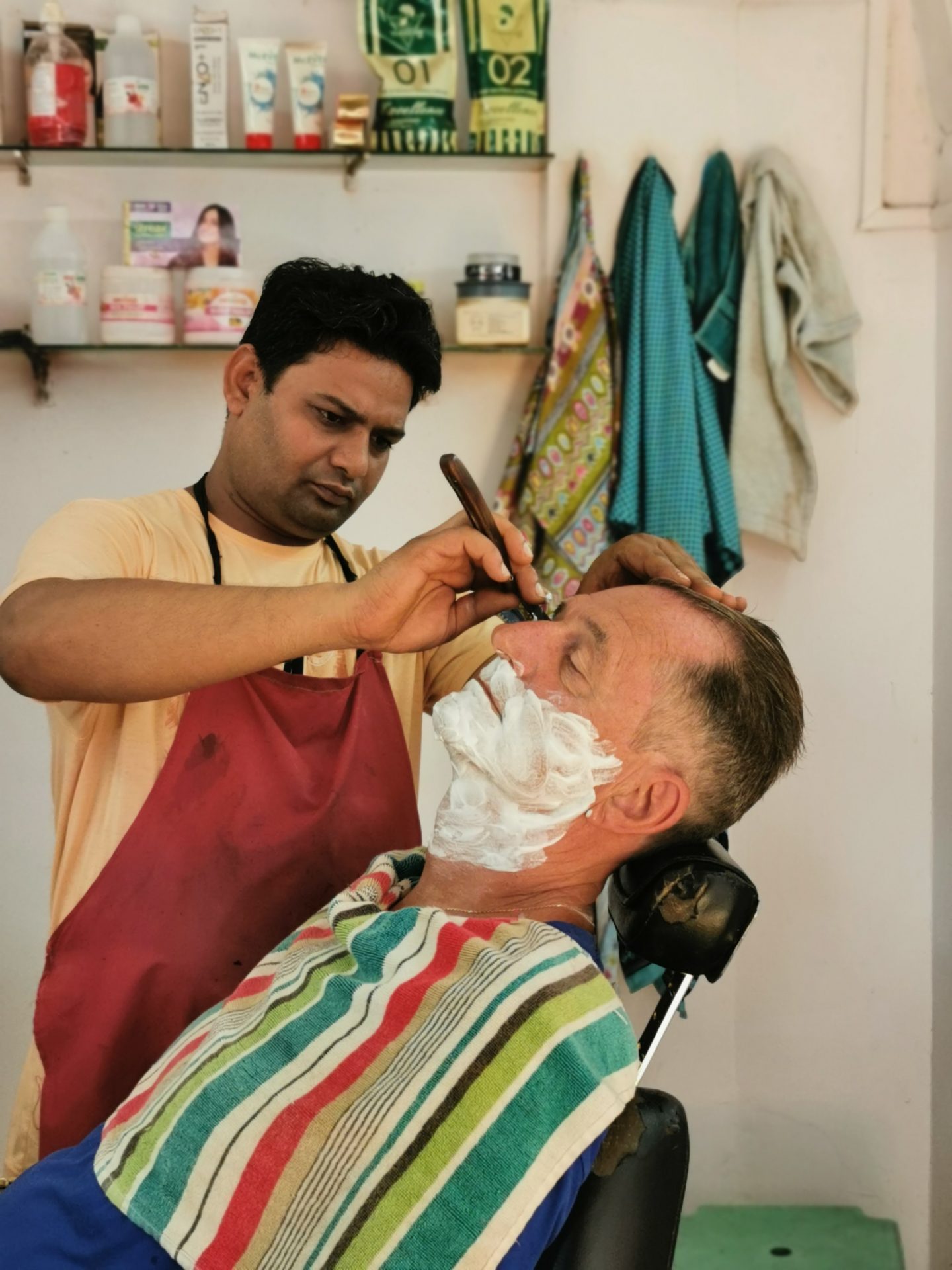
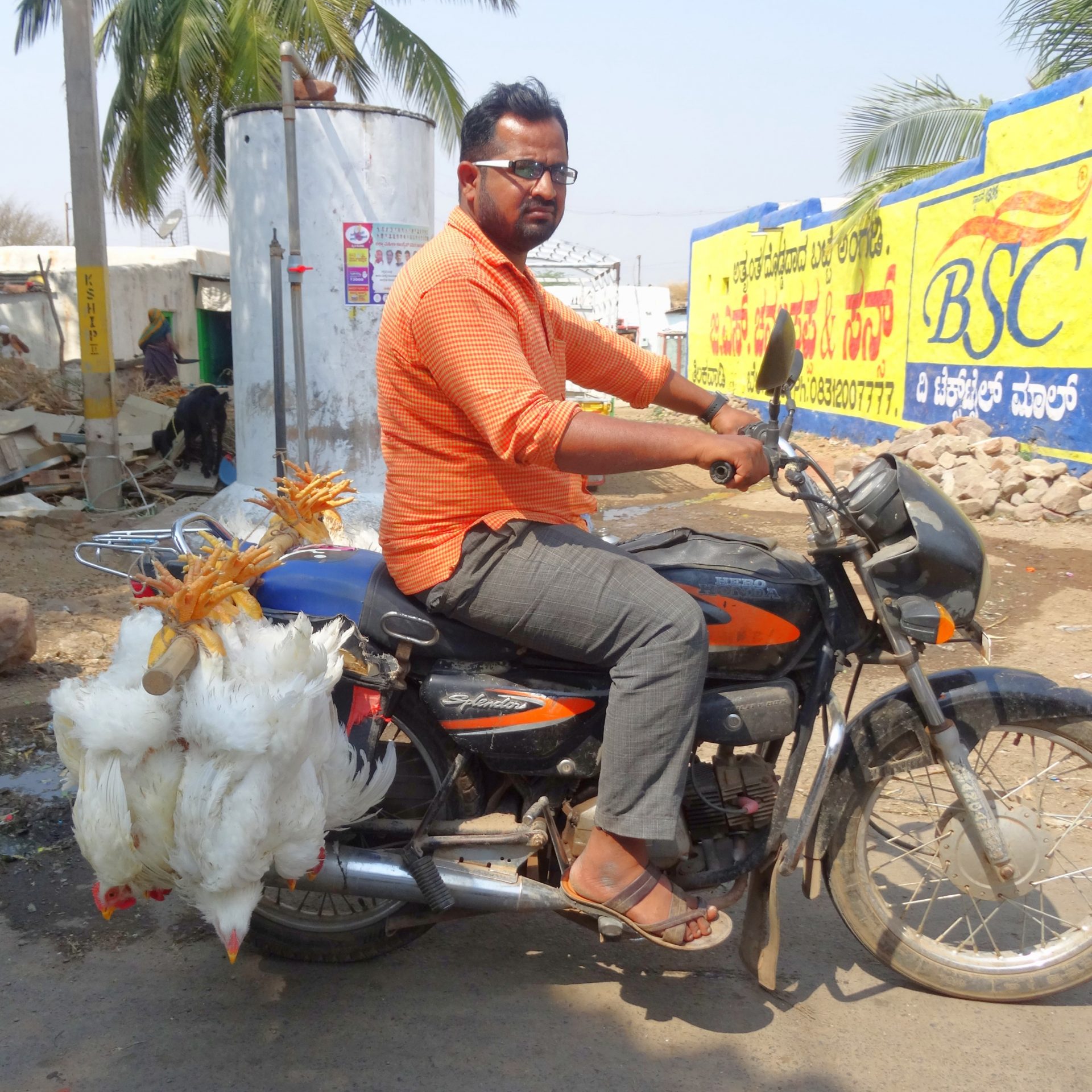
For the final stage of our Indian journey please visit South to Gokarna and a return to Alleppey.